

A WAR ON PEOPLE:
THE HUMAN COST OF CONFLICT AND VIOLENCE IN SUDAN



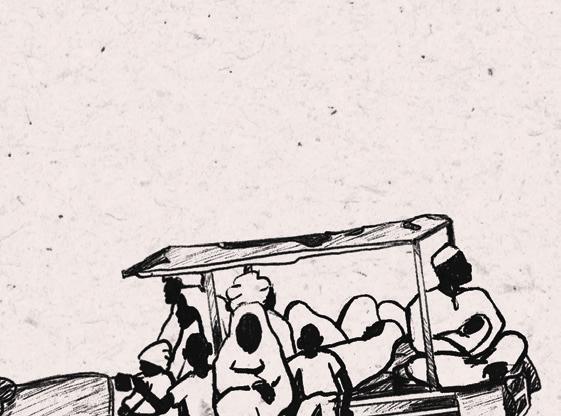



































Foreword


The violence in Sudan shows no signs of abating. In fact, it is intensifying at a pace that outstrips our ability to process, document and respond to the daily events that our teams and patients experience in Sudan.






As I wrote this foreword, our staff and patients continue paying the price of ever more reckless attacks and violence on the facilities we support. In May, a paediatric hospital in El Fasher, hosting 115 sick and malnourished children, collapsed because of an airstrike by the Sudanese Armed Forces. Among the children and caregivers that could not flee the facility, three were buried in the rubble of the intensive care unit after a second airstrike hit the roof on the following day. MSF teams treated 707 wounded patients in just 10 days, and we continue to count the dead. Less than a month later, the MSF-supported South Hospital in El Fasher was completely shut down after the Rapid Support Forces stormed, plundered and fired shots inside the facility. The hospital was hit by mortars and bullets multiple times two weeks earlier, killing two people and wounding fourteen, and forcing MSF to evacuate staff and patients.Earlier in May, MSF teams in Wad Madani were compelled to leave and shut down operations in the only functioning secondary healthcare facility in the area. They could not operate in safety. They could not run activities due to consistent obstruction of access for teams and medical supplies by the Sudanese authorities. They could no longer treat patients under deliberate attacks and disrespect of our medical mission.


Sudan has entered its second year of conflict yet the collective response needed to confront this emergency is insufficient or fully absent, while obstructions to humanitarian access are heavy and recurrent. Hospitals keep being damaged or looted, more civilians killed and violated, and more malnourished children are left with empty stomachs. The price paid by civilians in this war qualifies a conflict seemingly between warring factions, as a war on the people of Sudan.


Amid the hardships for humanitarian organisations and international media to access or maintain a presence on the ground, this report is the realisation of a humanitarian imperative to bear witness on the atrocities of this war, outlining its medical impact on the population and on those who relentlessly work to assist those in need.


This report is not meant to be a static account of events, but rather a vehicle for greater visibility, to initiate more concerted action. Otherwise it is only a dire preamble for the months to come.

Vickie Hawkins, General Director MSF Netherlands and Operational Centre Amsterdam
















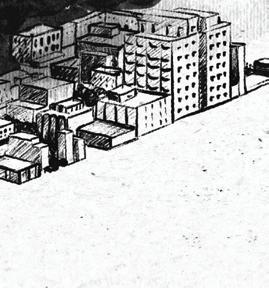







MSF in Sudan
MSF has been present in Sudan since 1979. In response to the conflict, MSF is currently active in eight states across Sudan, providing lifesaving assistance to populations affected by violence, displacement, and country-wide disruptions in the health system. MSF supports 20 Ministry of Health (MoH) hospitals and over 10 clinics and primary healthcare centres, manages 2 fully run MSF hospitals, and deploys mobile clinics to reach those in need across the country. MSF employs around 1,072 staff recruited in Sudan, has over 135 internationally recruited staff currently working in Sudan, and pays incentives to over
From April 15th, 2023, to April 15th, 2024, MSF-supported hospitals, health facilities, and mobile clinics have:
Provided more than 500,000 consultations
Treated more than 2,000 people for cholera and thousands of measles cases
Supported treatment for over 30,000 children with acute malnutrition
Cared for over 100,000 malaria patients
Assisted more than 8,400 deliveries and performed 1,600 caesarean sections
Treated thousands of war-wounded patients injured by shelling, bombardment, and shrapnel

Responded in Chad and South Sudan where over a million people have taken refuge
In Khartoum, MSF is responding in Bashair Teaching Hospital, Shaheed Wadaatallah primary healthcare clinic, and Alban Jadeed Hospital. In the state of Kartoum, MSF teams are also working in Al Nao Hospital, Al Saudi Maternity Hospital, and Al Buluk Maternity in Omdurman, and in Umdawanban Hospital in Umdawanban.

Over 6,700
war-wounded patients were treated in Al-Nao hospital between April 2023 and April 2024.

Executive summary
The consequences of over a year of full-blown conflict on the health and wellbeing of people in Sudan are disastrous. The population has faced horrendous levels of violence, succumbing to widespread fighting and surviving repeated attacks, abuse, and exploitation by the Sudanese Armed Forces (SAF) and the Rapid Support Forces (RSF).
Drawing on medical and operational data collected from April 15, 2023, to May 15 2024, this report highlights the patterns of violence observed by our teams, the features of abuse characterising this conflict, and the ensuing health consequences for affected populations.
In active conflict areas in Khartoum and across Darfur states, MSF supports the few remaining hospitals and emergency wards functioning in Sudan. Our teams treat thousands of war-wounded patients in locations affected by crossfire, large-
scale bombing, and shelling where homes, health facilities and essential infrastructure were hit, destroyed, and made inoperable. From August 15, 2023, to April 30, 2024, the Al Nao hospital in Omdurman – one of the eight facilities MSF supports in Khartoum state – admitted a total of 6,776 war wounded patients, on average 26 war wounded patients per day, for gunshot (53%), shrapnel (42%), and stabbing wounds (5%). At least 399 of them died from their injuries. Women and children have not been spared, comprising almost 30% of the 624 war-wounded treated – in March 2024 alone.
From May 2023 to April 2024, MSF teams in Bashair Teaching Hospital in Khartoum treated 4,393 patients presenting with trauma related injuries, corresponding to 42% of all Emergency department consultations across the period of analysis.
© Atsuhiko Ochiai/MSF/Sudan

Across Sudan, people’s access to lifesaving care has been drastically a ected due to critical shortages, widespread obstruction and looting of medical supplies, insecurity and attacks against patients and medical sta , breaches of medical protocols in hospitals, and structural damages to healthcare infrastructure. Al Nao Hospital was hit by shells on three separate occasions in August and October 2023, and in June 2024, leading to a reduction in the availability of lifesaving services. In July 2023, a healthcare worker of the MSF-supported AlSaudi Maternity Hospital was shot dead inside the maternity ward, leading to the closure of the facility. Nowhere is safe for populations trapped in Sudan’s conflict hotspots, forcing millions to flee.
In the camps and gathering sites where refugees and displaced populations seek safety, MSF patients recount horrific stories of inhuman treatment and violence perpetrated by armed groups on the civilian population. People’s accounts describe systematic cases of forced eviction, looting and arson, degrading interrogation, arbitrary arrest, abduction and torture – all against the backdrop of heightened suspicion around those attempting to flee and reach safer areas.
1 Currently known as Aboutenge camp
Sexual and gender-based violence is pervasive but critically underreported due to stigma, silence for fear of retaliation, and the void in protection services and confidential spaces conducive to disclosure. Data from MSF facilities supporting Sudanese refugees in Chad hint at the widespread use of sexual violence as a form of warfare, particularly targeting women and girls. Between July and December 2023, 135 survivors turned to our teams in Adre (Chad), disclosing cases of rape, abduction, and exploitation perpetrated in Sudan during the conflict. In 90% of cases, perpetrators were armed men.
In Western Darfur, violence has taken an ethnic dimension, targeted against the Masalit tribe, and has included forced displacement, unlawful killing, and other forms of inhuman treatment reportedly by the RSF and a iliated groups. In June 2023, MSF teams in Chad treated over 800 war-wounded patients in three days, most of them Masalit having fled El Geneina city and its surroundings. A retrospective mortality survey conducted by MSF between August and September 2023 in three Sudanese refugee camps in Chad showed excess mortality across the camps; Ourang1 camp observed a 20-fold increase in mortality rates from April 2023 onwards with a peak in June, compared to pre-crisis rates. Additionally, an MSF survey conducted in South Darfur in February-March 2024 indicated excess crude mortality rates and found that in north Nyala, the conflict is leading to a doubling of the crude mortality rate (CMR), especially during heavy fighting in October 2023.
1 out of 3
patients were treated for blast and shrapnel injuries at Al Nao Hospital during March 2024.
© Mohammad Ghannam/MSF/Chad, Sudan
More than a year of full-blown conflict has had disastrous consequences on the health and wellbeing of people in Sudan. The physical and mental wounds of violence have been exacerbated by the collapse of the health system and the paucity of the international humanitarian response. MSF teams continue to treat people dying from preventable complications because they were unable to reach any facilities earlier or afford medicine, if available. MSF mental health teams are seeing the tremendous toll of conflict and violence on people’s mental health and psychological wellbeing, with widespread trauma-related symptoms sometimes leading patients to self-harm.

30%
of war wounded patients treated at Al Nao Hospital, Omdurman, in March 2024 were women or children under the age of 10.
As MSF continues to respond to urgent medical needs and the consequences of ongoing violence, further exacerbated by lack of humanitarian access and the warring parties’ blatant disregard for human life and international humanitarian law (IHL), MSF calls for:
Warring parties to cease attacks on residential neighborhoods, allow safe passage and routes for people seeking protection, and protect vital infrastructure from further destruction and looting.
Warring parties to stop all targeted forms of violence and abuse against populations and ensure that ethnic violence and sexual and gender-based violence are not used as weapons of war.
Warring parties to immediately facilitate aid; allow unhindered humanitarian access and ensure supplies and staff reach those in need; assistance must be able to reach people in need across borders and front lines.
Vested partner states and regional bodies to increase pressure on the warring parties in Sudan to abide by their obligations regarding civilian protection.
The United Nations to repeat and amplify messages regarding the promotion and respect of international humanitarian and human rights laws, increase field presence of UN senior staff, and ensure that protection responses are scaled up and adequately coordinated.
Humanitarian organisations to scale up programming and adapt the response across all sectors to the complexity of the operational context in Sudan.
© Fais Abubakr/Sudan

Introduction

















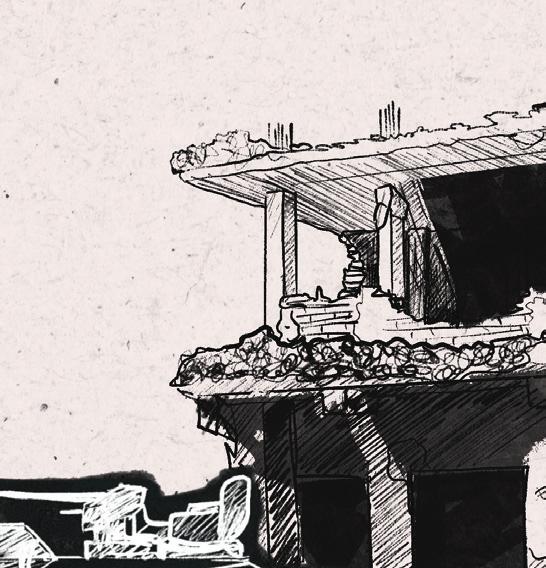


Since the outbreak of the conflict in April 2023, over half a million people have sought medical care in Médecins Sans Frontières (MSF) supported hospitals, health facilities and mobile clinics across Sudan. While providing emergency assistance, our teams have witnessed the country’s population fall into protracted cycles of violence and deteriorating living conditions. As the conflict enters its second year, the needs remain enormous: more than 24.8 million people – half of them children – are in need of assistance and 8.7 million have been forced to flee their homes, resulting in the worse displacement crisis globally.2 The scale of urgent needs has increased amid significant funding shortfalls3, access constraints, coordination challenges, and the lagging return of international aid coordinators and responders to the country.




Unremitting violence unleashed against the population fuels further suffering. The collapse of protection guarantees and mechanisms for those affected by the conflict has exposed millions of people in Sudan to abuse and violence.4 Despite commitments made in Jeddah in May 2023, parties to the conflict continue to disregard their obligation to protect civilian lives and infrastructure5, with catastrophic effects on the health and protection of the population. Despite human rights organisations’ efforts to warn against rights violations6, the scale and nature of violence remains insufficiently addressed and documented, partly due to self-imposed and state-led access restrictions for international humanitarian organisations and limited media coverage.

In this complex humanitarian setting, where the flow of information is precarious, and presence on the ground obstructed, MSF has a moral imperative, core to our founding principles, to bear witness to the violence and call out the parties responsible. The report aims to shed light and


2 OCHA, Sudan Situation Report, 25th April 2024
3 Despite the over $2 billion pledged during the International Humanitarian Conference for Sudan and neighbouring countries in Paris in April 2024, funding to the humanitarian response plan reached only 10% of estimated needs following the conference.
4 ACAPS, “Sudan: Protection concerns: ten months into the war”, 29 February 2024
5 Human Rights Council Situation Report on Sudan, February 2024
6 In February 2024, the HRC issued a situation report condemning violations of human rights by both parties to the conflict. Human rights groups have also alerted on violations being committed by armed groups, including through Amnesty International’s report on Sudan.


describe what we have observed and experienced, as a medical humanitarian organisation. We hope that the elements and conclusions reached in this report will feed into wider discussions around civilian protection in Sudan, propel scrutiny on human rights violations unfolding in the country, and keep Sudan under the spotlight following the one-year mark of the conflict.



The report uncovers the human cost of violence and displacement on the population of Sudan as observed by our teams. It first details the consequences of widespread and unbridled fighting in densely populated urban areas, where data from MSF-supported hospitals speaks to the impact of urban warfare on the lives of those caught in the crossfire. The report then documents the nature of violence committed by armed groups against our patients and staff. Whether attacked in their homes or along displacement routes, people treated in our clinics and hospitals have told us horrific stories of assault, arson, abduction and illtreatment, as well as sexual and ethnic violence. In the areas where displaced people arrive, hindered access to care, medicines, and protection services are leading to preventable health complications and psychological distress. With this report, MSF explores the consequences of violence on people’s health, and the many visible and hidden scars it has and will continue to leave on our patients.


MSF is sounding the alarm on the unfathomable year of violence endured by populations in Sudan, abandoned to a neglected conflict of which they have already paid the highest price. Without an immediate end of violence and abuse and a humanitarian response commensurate with needs, people will continue to suffer the unbearable consequences of the conflict on their health, wellbeing, and safety.




Methodology
This report draws on medical and operational data collected by MSF. It covers specific time periods from the onset of the conflict in April 2023 to May 2024, using data contributed by all MSF sections operating in Sudan. Data collection follows specific timeframes in line with MSF operational priorities in a volatile emergency context (obstructed access, interruptions to operations, operational and security constraints). Additionally, the report draws on 30 testimonies from MSF patients and staff collected across our projects in Sudan, in refugee and returnee camps in Chad, and on MSF’s Search and Rescue vessel in the central Mediterranean. Testimonies were collected either to corroborate or complement data insights with a qualitative set of information.




Medical data collected for routine monitoring purposes was aggregated, anonymised, and used for analysis while ensuring full respect of medical ethics and patient confidentiality. A clear estimation of the number of civilians treated by our teams is challenging to provide. As required by medical ethics and international humanitarian law (IHL), all wounded patients have civilian status, hence our medical teams cannot and do not categorise patients by their military status. The conspicuous number of women and children seeking care for conflict-related trauma suggests that the number of civilians seeking care in MSF medical facilities remains significant.
Data analysis was supported by a dedicated epidemiologist to ensure quality control for any discrepancies or missing data that could have affected overall trends and findings. Operational data includes incidents and red flags that were witnessed – or directly affected – MSF staff and missions in the field, ensuring the high credibility of reported events.
The interview process followed MSF guidelines and policies. Testimonies were collected by qualified humanitarian affairs staff, taken in confidential settings, and following informed consent from
witnesses. Patients were informed about the nature of the activity, and their right to stop the interview at any point in time. Patients were also informed of their right to withdraw their consent following the completion of the interview. Interviewers also informed witnesses that testimonies were provided voluntarily and would not be conditional to access medical care. To protect our patients, all interviews were conducted anonymously and information traceable to the respondent omitted. Additionally, patients consented on whether accounts could be used for public communication and reporting purposes. Interviews were carried out in English or Arabic, with the support of an MSF translator where necessary.
The findings presented in this report neither intend to provide an exhaustive account of the magnitude and large scale of violence perpetrated in this conflict, nor to selectively amplify or minimise the atrocities committed by any party or perpetrator. While multiple patients’ accounts have emerged through MSF activities in neighbouring countries, in places of improved safety to disclose experiences, many of our patients still live in highly militarised and surveilled environments, in areas under government control or under influence of the RSF and aligned groups. As a result, many stories remain hidden or silenced, due to fear of repercussions. Our medical data, observations, and patients’ accounts point to a broad spectrum of responsibility for all parties and individuals in this war, which extends far beyond the content of this report.
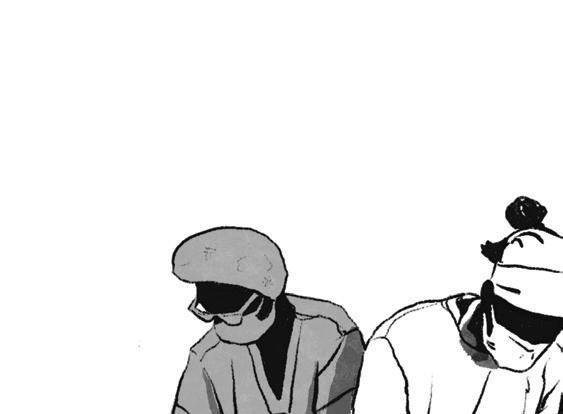
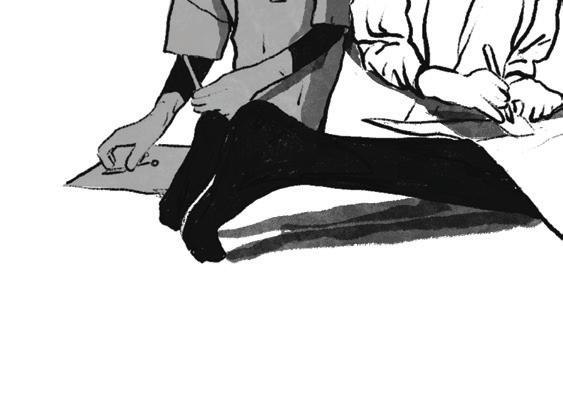
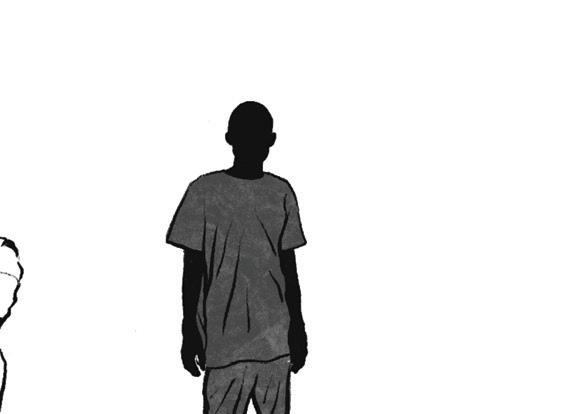
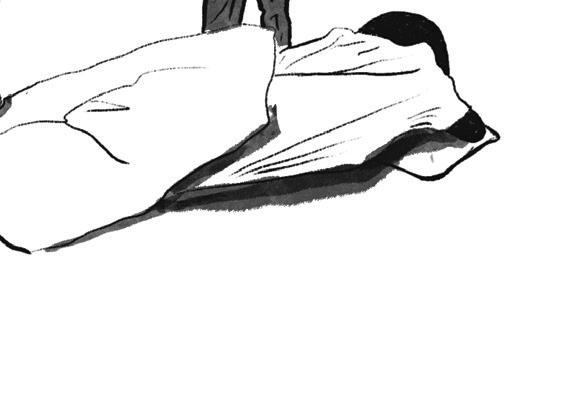

Violence in active conflict zones: the cost of indiscriminate fighting



Urban centres have been the battleground for the power struggle between SAF and RSF. The war that broke out in Khartoum in April 2023 – a city of 4.9 million people – rapidly spread to urban centres in Darfur states and later in Al Jazirah and across Kordofan. The movement of active frontlines across densely populated areas has trapped millions of people in their homes, unable to flee. Thousands caught in heavy clashes have been injured or killed. Aside from indiscriminate violence, fighters and armed groups have taken advantage of conflict-induced chaos to attack and loot civilian homes and health facilities7, limiting access to healthcare.









When the conflict started, I was in Omdurman near a RSF base. The bombing was heavy, we were all afraid and hiding under the bed every time airstrikes hit the neighbourhood. […] When we went out of the house, we saw dead bodies on the street […]. All the shops were closed, all the food finished, we had no more electricity, and water got cut. […]. RSF then started to investigate everyone, and to beat a lot of people.










7 MSF Press release, “MSF facilities looted, medical activities impeded by violence in Sudan”, May 2023
MSF Patient, Kassala, January 2024
© Mohammad Ghannam/Sudan
IN SUDAN
The human cost of large-scale urban fighting
MSF is supporting more than 12 health facilities in conflict-afflicted areas, including in Omdurman and Khartoum, sites of high intensity clashes since the beginning of the war. Data from medical consultations and accounts from our patients and staff reflect the scale of civilian suffering, with thousands of patients arriving to the ER for conflictrelated trauma since the beginning of the conflict. In South Darfur, MSF teams returned to Nyala in January 2024 and support the Kas and Nyala teaching hospitals, which continue to receive warwounded patients despite the absence of largescale hostilities.
Between May 10 2024 and May 25 2024, MSF medical teams responding to the consequences of the current fighting in El Fasher received 930 casualties in MSF supported South Hospital, leading to 123 deaths. This includes 160 casualties received on May 10 alone, and 130 on May 12. Insecurity meant that most people remained unable to reach any of the few remaining functional medical facilities. On May 25, an MSF team member was killed when shelling hit his house, located close to the city’s main market.
In the MSF-supported Al Nao Hospital in Omdurman, medical teams treated over 6,776 patients for conflict-related trauma from midAugust 2023 to the end of April 20248, averaging over 26 patients per day and including over 3,607 cases of gunshot wounds (53%); 2,850 people wounded from shrapnel (42%); and 319 from stabbing wounds (5%). At least 399 war-wounded patients have died from their injuries, including women and children. Hospital and staff capacities have been completely overstretched, with our teams reporting more than 100 responses to mass casualty events. Over a seven-month period from August 2023 to April 2024, the hospital reported 15 separate days with over 50 war-wounded patients9 arriving to the
8 Earliest data available on conflict-related trauma treated in Al Nao ER, disaggregated by type of trauma.
9 With respect to medical data presented, war-wounded was defined as those patients with injuries sustained from gunshots, shrapnel or stabbing.
ER, leading to a complete saturation of services. Between August 6 and August 8, 2023, the hospital received over 430 war-wounded patients; and over 100 patients on at least two single days (October 5 and November 4). A healthcare provider described one of the mass casualty responses:




We heard an explosion, we could not identify where. When the first people started coming, they informed us there was a mass casualty and that more people were flocking towards the hospital. There was a shelling in Thawra 92, 110 victims reached Al Nao because of this mass casualty event. About 20 people arrived and died straight after, some arrived already dead. Most of them came with already hanging hands or legs, already amputated. Some only with a small part of skin keeping two limbs together. One patient came with an amputated leg, their caregiver followed behind, carrying the missing limb in their hand. Even if you walked by you could see the wounded on the floor, it was a red bloodbath around the entire facility.”






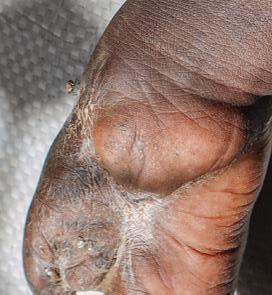
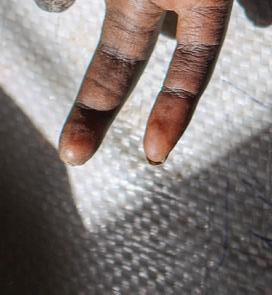





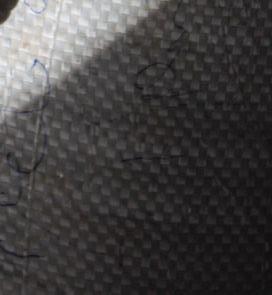









Healthcare provider, Omdurman, North Khartoum, May 2024
© Fais Abubakr/Sudan
Since the beginning of 2024 to end of April, the Al Nao Hospital ER received over 2,627 war-wounded patients10, indicating that the violence and its impact on the general population continues. In February 2024, mass casualty events twice resulted in the admission of more than 50 patients with conflictrelated trauma (on February 17 and 19).
Snapshot for March 2024
Our team in Al Nao Hospital treated at least 624 victims of gunshots, shrapnel, or stabbing injuries –an average of 20 war-wounded patients a day. About 1 out of 4 patients treated for surgical care (n=2381) were admitted for conflict-related trauma. Gunshot wounds accounts for most of the consultations (62%), followed by blast and shelling injuries.




of consultations in March 2024 at Al Nao Hospital were conflict-related injuries resulting from gunshots.


Disaggregated data by gender and age available for March 2024 indicate that women and children have not been spared from the fighting. Women accounted for 25% of cases (n=152), and children under ten for 5% of total war-wounded patients admitted (n=30).11 An MSF patient displaced from Omdurman and interviewed in the IDP gathering sites in Kassala described how her child was severely injured:
Our home was bombed at night, probably by an airstrike. It was completely destroyed, and the walls were covered in bullets. […] My child was permanently injured in the head because of the blast, and had to undergo many surgeries. He’s been suffering for months.

MSF Patient, Kassala, December 2023



10 Of which 1659 for gunshot wounds, 857 for blasts, and 111 for stabs.
11 Other children were referred to Al Buluk Hospital for paediatric care and are therefore not represented in this data.
© Mohamed Zakaria/Sudan
A patient interviewed on board MSF’s Search and Rescue vessel in the Mediterranean after having fled through Chad and Libya described the first hours of the fighting in Khartoum on April 15:
The fighting started while we were in Souq Al-Arabi [Arab Market –Khartoum] at around 7 or 8 am. RSF militias started closing the streets, banks, stopping buses, and then the roar, the bangs, the shooting started. Shells started falling over the market and over the people. The market was completely destroyed, nothing was left of it. We hid there for three days.
MSF Patient, Central Mediterranean, August 2023
In South Darfur, MSF teams witnessed first-hand the impact of indiscriminate violence on the general population. In May 2023, an SAF airstrike killed an MSF staff member along with two of his family members in Nyala, while another member of staff survived an assault and stabbing by RSF fighters in the north of Nyala. In June 2023, an MSF patient interviewed in a refugee camp in Chad described the loss of family members:
Bombs were falling everywhere, and soldiers were entering houses. I saw many people dead. A bomb fell next to my house, too. […] I lost 5 people in my family, 2 women and 3 men. A bomb fell on their house while they were asleep. They all died.
Sudanese refugee, Chad, June 2023
We arrived in Nyala at the beginning of January 2024. People in the street waved at us, put their thumbs up. They wanted to share their stories, let us know what happened to them and their families. to talk about losses, people who died in airstrikes, children with limb amputations who were still undergoing surgeries.”

In October 2023, an MSF staff member witnessed four individuals dying because of shelling over El Geneina market in Nyala, and another 11 people were severely injured.12 On December 14, 2023, airstrikes over Southern neighbourhoods in Nyala resulted in multiple civilian deaths that were reportedly brought to the just recently re-opened Nyala Teaching Hospital13
From January 1 to April 30, MSF supported 105 patients with conflict-related trauma, including gunshot wounds, blasts and stabbing-related injuries.14 Upon their return to Nyala, an MSF Emergency Coordinator relayed harrowing stories of the civilian population describing the fighting in the city.
13
14
12 MSF red flag reporting.
MSF red flag reporting for South Darfur.
56 patients treated at Nyala Teaching Hospital; 49 treated Kas Teaching Hospital (data January to March 2024).
MSF Emergency Coordinator, South Darfur
© Marie Burton/MSF/Sudan
Damaged and unsafe health facilities
Destruction, looting, and the presence of weapons in medical facilities have been a consistent feature of the conflict, making hospitals and healthcare centres unsafe environments, and limiting access to care for patients in conflict zones. An estimated 70–80% of hospitals in conflict-affected areas are no longer functional, and more that 65% of the population lacks access to healthcare.15 Accounts from MSF-supported hospitals in conflict zones speak to this reality. Our teams have reported no less than 60 incidents of SAF and RSF violence and attacks on MSF staff, assets and infrastructure – ranging from clashes and looting of medical supplies in hospitals and warehouses, to incidents related to weapons being fired in the facilities we support, all impacting people’s ability to access health facilities and remain safe while receiving lifesaving care and assistance.
In Omdurman, the MSF-supported Al-Saudi Maternity Hospital suspended services in July 2023 and relocated to the Al Nao Hospital compound following the shooting and killing of a healthcare provider within the hospital premises, most likely by a sniper. The MSF-supported Al Nao Hospital was struck three times by shelling in August and October 2023, and in June 2024. In October 2023, a shell hit the ER department, killing two healthcare providers, critically injuring five people, and causing minor injuries to several others. In September 2023, security authorities in Al Nao arrested a health volunteer inside the hospital premises under suspicion of supporting RSF. Later during the month, a stray bullet hit the billboard of Al Nao Hospital dialysis department, and an SAF soldier hit a healthcare provider for not attending to him immediately. In November 2023, the area around the hospital was hit by intense shelling, with more than eight shells landing in the vicinity of the compound, critically disrupting services and access to care. Healthcare staff have also been directly


attacked by armed men within hospital premises, often leading to disruption of activities and security incidents related to the presence of weapons in the facility.
An MSF patient who witnessed the start of the clashes in April 2023 in Khartoum recounts the closing of hospitals to the public and armed groups prioritising healthcare for their combatants, virtually creating medical deserts for people, as NGOs evacuated from the capital:
Hospitals, schools, universities and other government administration buildings were closed. The Janjaweed controlled the remaining hospitals only to give medical care to their injured soldiers. Doctors and NGOs evacuated the country directly through Port Sudan. Pharmacies ran out drugs.
MSF patient, MSF Search and Rescue vessel, October 2023
15 OCHA, Sudan: One Year of Conflict - Key Facts and Figures Report, 15 April 2024
© MSF/Sudan
© MSF/Sudan

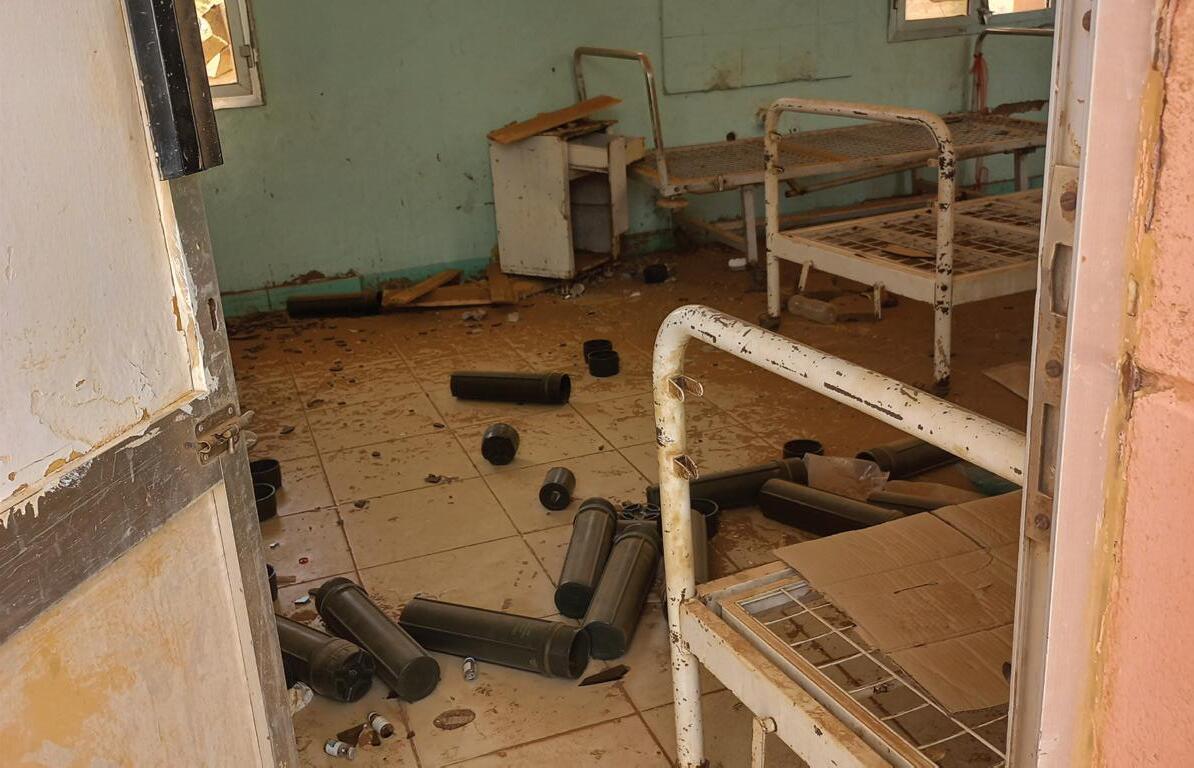
70-80% of hospitals in conflict-affected areas are no longer functional.15
In Khartoum city, the few health facilities that remained open were heavily impacted by violence.
In July 2023, the MSF team in the Turkish Hospital reported that an RSF soldier beat a caregiver in the ER. The incident led to an accidental discharge of his weapon within the hospital compound. On a separate occasion that month, armed RSF soldiers reportedly entered the Emergency department to look for SAF soldiers. An RSF soldier whipped a caretaker with the strap of his weapon on their way out. The following day, an MSF team transporting medical supplies was stopped and beaten in the vicinity of the Turkish hospital, leading to a reduction in activities and personnel presence.
RSF kidnapped medical staff and forcing them to work in their hospital. All the specialised doctors have been kidnapped and forced to treat the soldiers.
Healthcare Worker, Nyala, January 2024
Across Darfur, MSF supplies have been destroyed or looted by armed groups, further limiting our ability to provide care and reach populations in need. In April 2023, in South Darfur, RSF soldiers and affiliated members broke into our MSF compound and Nyala warehouses, violently assaulting our staff, and looting essential medical and humanitarian supplies and vehicles – forcing MSF to suspend medical activities until January 2024. In August 2023, RSF units stopped an MSF shipment of medical supplies from Chad at a checkpoint in Kay, reportingly diverting aid to their headquarters. A health worker also reported the abduction of medical staff, forced to join health facilities controlled by warring parties to treat combatants.
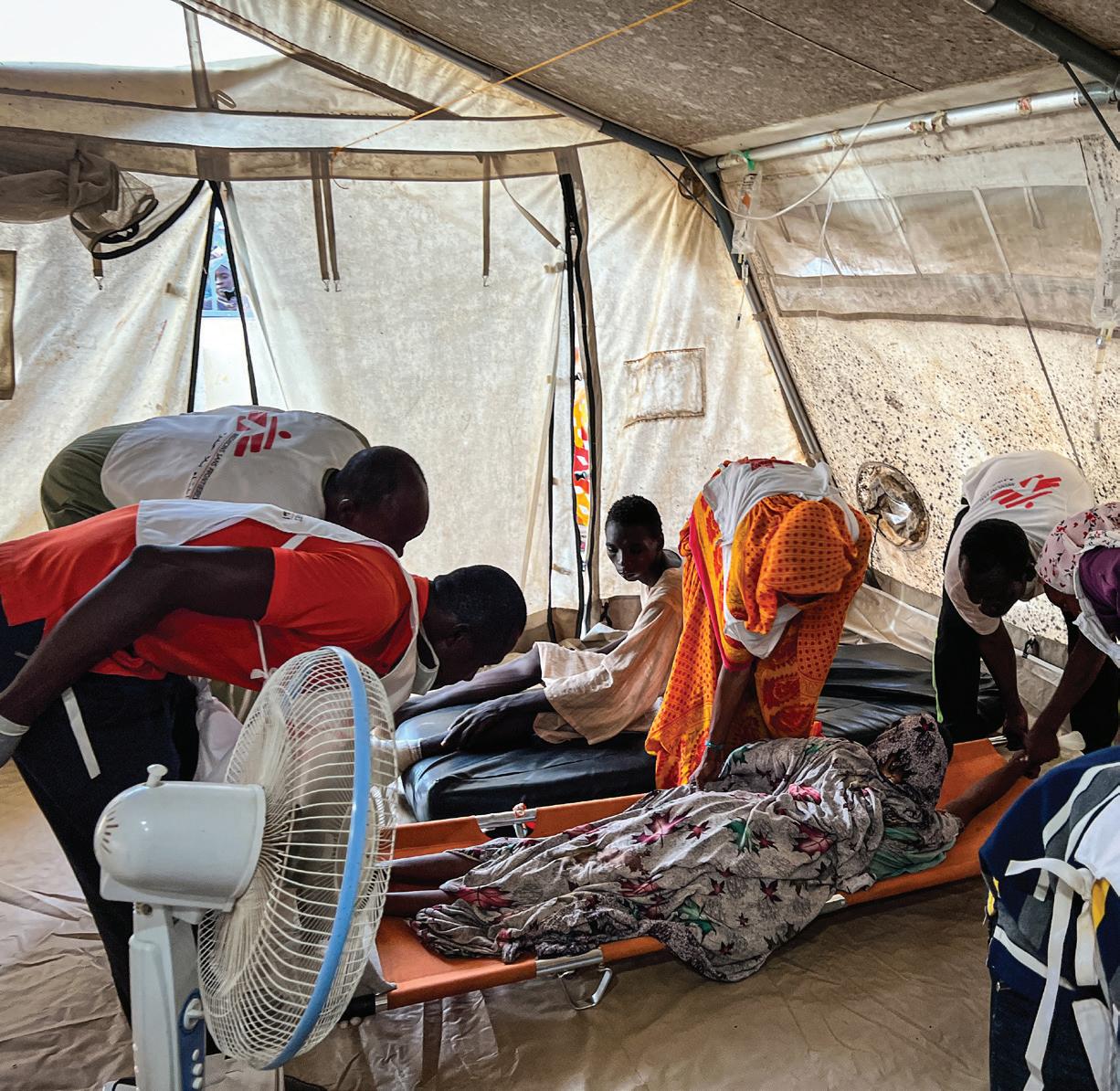
© MSF/Sudan
© Mohammad Ghannam/MSF/Chad, Sudan
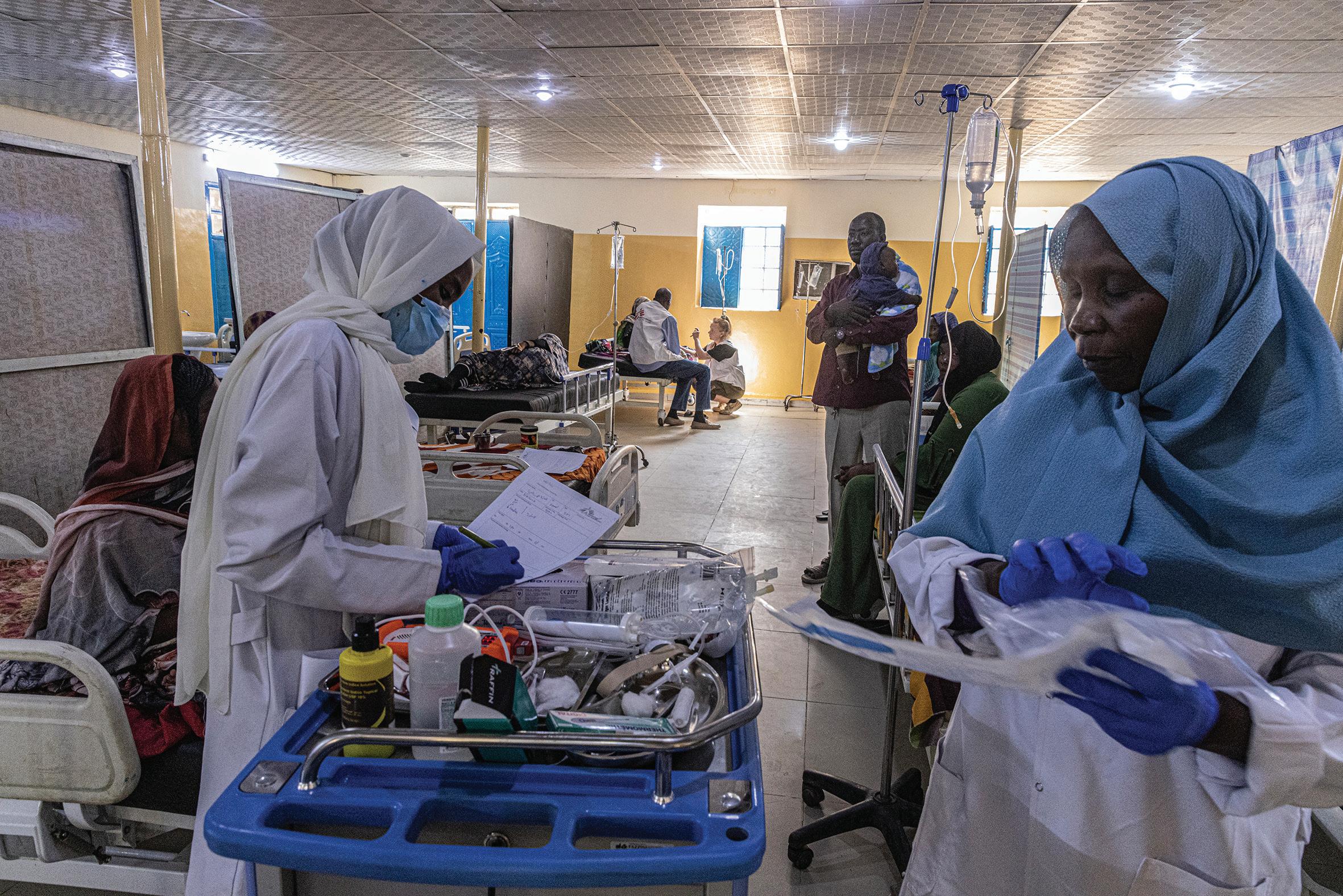
In Central Darfur, the MSF office and the Zalingei Teaching hospital were looted in May 2023: a generator was destroyed and fuel that MSF had donated was stolen. In February 2024 armed individuals broke into the MSF compound in Zalingei and looted MSF vehicles, disrupting activities that support the few facilities that remain operational in the area. In West Darfur, the MSF-supported El Geneina Teaching Hospital was looted over two days in April 2023, resulting in the closure of the facility due to structural damage and absence of medical supplies and material. In North Darfur, on the evening of May 11, 2024, an airstrike carried out by SAF landed 50 metres from the MSF-supported Babiker Nahar Paediatric Hospital. This led to the collapse of the roof above the intensive care unit and the deaths of two children who were receiving treatment there, as well as the death of at least one caregiver.16
People in conflict zones are safe nowhere – neither in their homes nor in the few remaining health facilities and hospitals that have treated the thousands of war-wounded patients injured in bombardments, shelling and crossfire. Damage to infrastructure and medical facilities critically hinders access for the sick and wounded to lifesaving care. Violence and insecurity inside hospitals is putting a strain on healthcare and humanitarian workers’ ability to deliver care, with activities frequently reduced or suspended. As the conflict continues to unfold across the country, the population – including healthcare workers and humanitarian staff – must urgently be protected from widespread fighting, and their access to healthcare guaranteed. Deconfliction in densely populated urban areas is urgently needed to avoid putting further innocent lives at risk, jeopardising vital infrastructure, and forcing more people to flee and risk additional violence on the way.
16 MSF Press release, May 12th 2024
© Juan
Carlos Tomasi/MSF/Sudan
Forced to flee: violence in people’s homes and along displacement routes
In Sudan there are over 10.5 million people internally displaced and over 2 million people have sought safety and protection in neighbouring countries. Most of the displaced population fled Khartoum, the epicentre of the conflict, followed by a second large wave of displacement from Wad Madani (Al Jazirah state) in December 2023, after RSF took control of the city. From Darfur, more than 550,000 people fled to Chad, and over a million sought safety in other states. As of April 2024, 13% of the population in Sudan was internally displaced.17



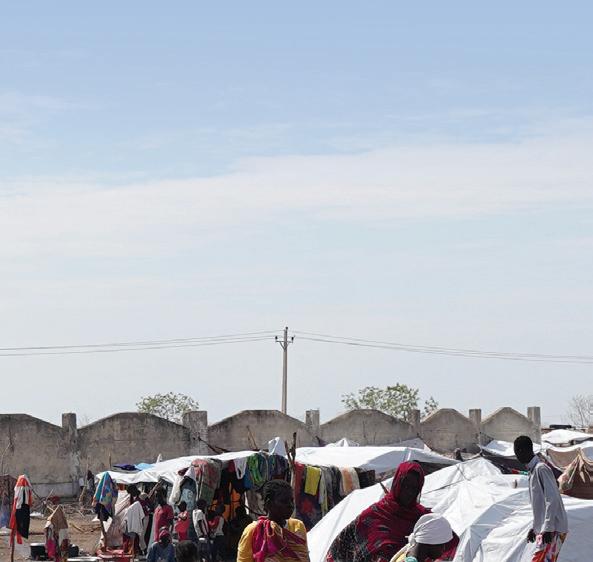

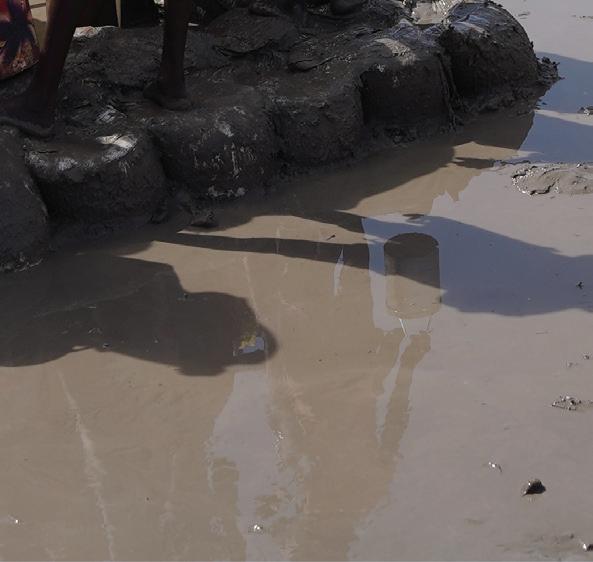
In MSF’s projects in displacement sites in Sudan, in Eastern Chad refugee camps, or along international migration routes, patients continue to describe troubling attacks and abuse inside their homes, and along displacement journeys. Patients’ accounts received by MSF teams depict a grim picture of abuse against civilian populations, and a climate of general suspicion and mistrust of all those fleeing conflict zones.

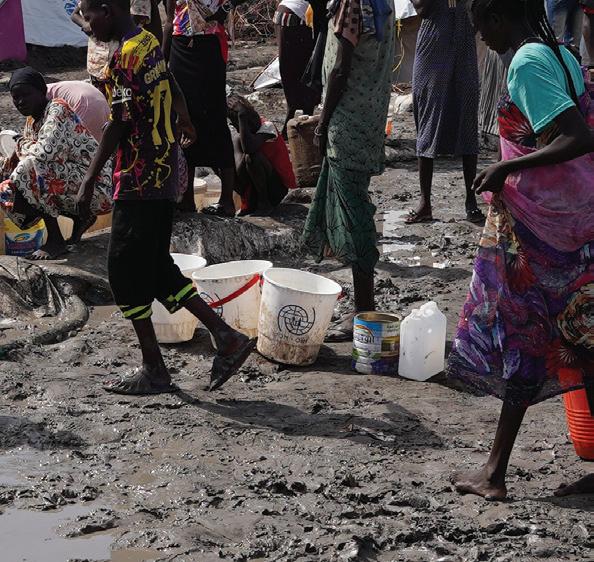

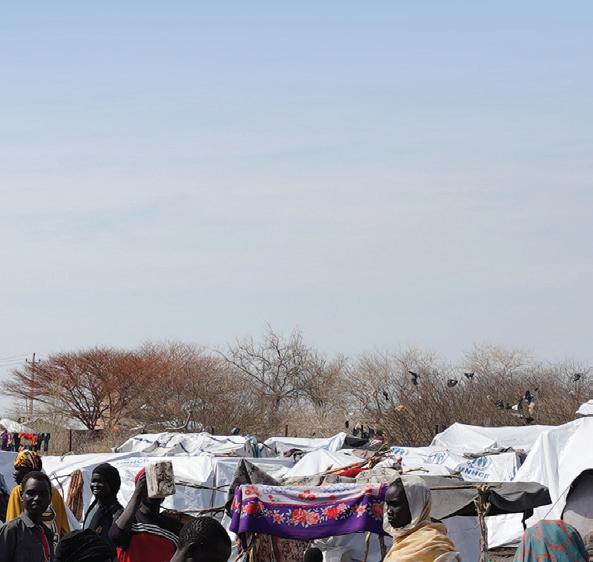
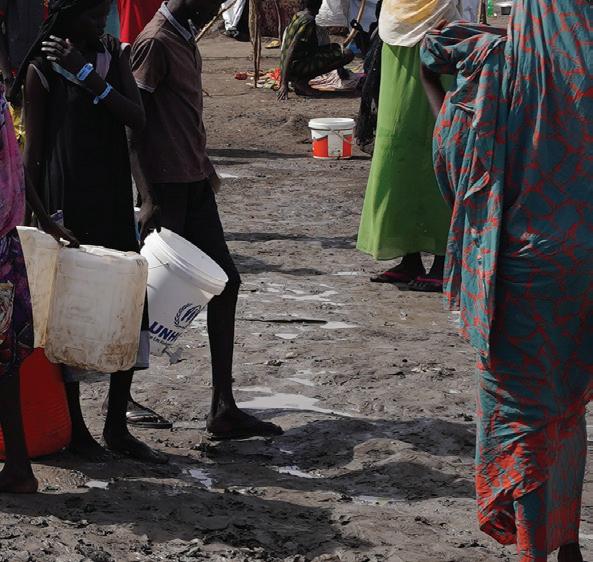

10.5 million people in Sudan are internally displaced.17



17 IOM, Sudan Displacement Matrix, July 2024
© Nasir Ghafoor/MSF/South Sudan
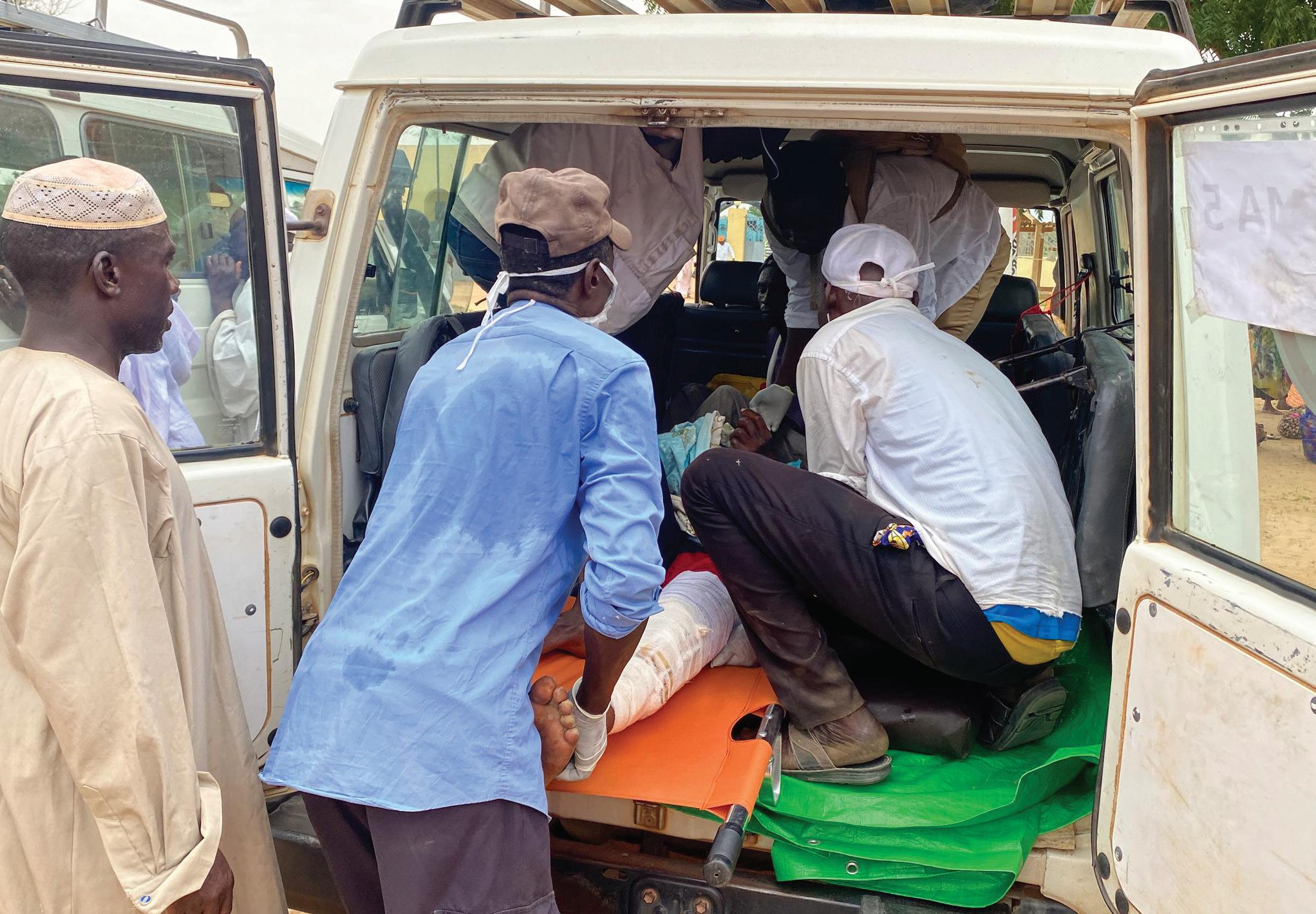


Lootings, arson and violence against people in their homes


MSF patients describe fighters targeting civilians in their homes – forcing thousands to flee out of fear of attacks. Incidents shared with MSF include armed groups storming into homes, committing arson, looting property and cattle, and forcibly displacing households. The level of violence is exemplified in an account from a man stabbed in his home in South Darfur and left to die:



The men were armed with guns (two large guns and three AK-47 with the sticks in their hands) and dressed in RSF camouflage/ military uniform. I could also tell by their physical features they were Tarjam Arabs and thought they would be RSF. When I turned to walk back into my house, one of the armed men stabbed me in the back and another soldier hit me on the back of the head very hard. I was stabbed many times and fell to the ground. I could hear the soldiers talking about me as I was laying on the ground bleeding. I could not get up. My neighbours were making noise to chase the soldiers away. My wife came out of the house and was crying and screaming at the soldiers why they would do such a thing and kept on screaming and crying. The soldiers broke into my house and took some clothes and personal belongings. They saw that my car inside the compound was in pieces with no tires and would be difficult to move. They gave up on the idea of taking my vehicle. As they exited my house, they looked at me laying on the ground, I was barely conscious. I could hear them say ‘He will die, don’t waste your bullets,’ as one of them pressed his foot on me.


MSF patient, Nyala, March 2024

Johnny Vianney Bissakonou/MSF


Recounting the arrival of RSF forces in Wad Madani in December 2023, a patient in a gathering site for IDPs in Gedaref city, described soldiers assaulting residents before forcing them to evacuate their homes:


RSF arrived to Madani, they were going house by house, with motorbikes interrogating people, they wanted to find people affiliated with the army or the police. In our neighbourhood, they would beat those they thought were involved, or directly shoot them. They came to our house in December, they told us to leave the house and leave the city.


MSF Patient in Gedaref, March 2024
A patient interviewed on board the MSF Search and Rescue vessel in the central Mediterranean reported being forced to flee Khartoum because of the widespread attacks and looting incidents. Previously displaced from Darfur, he explained the profound impact of repeated displacement on his life and mental health:






MSF patients in Chadian refugee camps described raids against people’s houses and acts of arson, as well as extreme forms of violence during the wave of attacks in West Darfur:


I decided to leave Khartoum to El Fasher one month and a half after the war started, losing my dream of studying English literature and witnessing the Janjaweed [RSF affiliated militias] attacking houses and stealing everything inside, re-living the trauma of what they have done to us before in Darfur.
Sudanese refugee, MSF Search and Rescue vessel, October 2023.





[In early May] I returned from Andressa into Sudan to look for money and food for my wife and children. When I arrived at my house in Forabaranga [West Darfur], I found it looted. I was then kidnapped, tied up and whipped by militiamen.
Sudanese refugee, Andressa, Chad, May 2023
My house was set on fire during the fighting. I came to live with my brother in Forabaranga after that. Last week, they set fire to my brother’s house too, so we had to leave.
Sudanese refugee, Andressa, Chad, June 2023


I saw with my eyes some soldiers coming with cars to our home. My older brother was asleep, and they shot at him; they stole all our belongings and cattle. They set fire to the house, trapping my brother inside.
Returnee in Daguessa, Chad, August 2023

© Juan Carlos Tomasi/MSF
Harassment and abuse at checkpoints
Civilians fleeing conflict areas describe widespread harassment and abuse at checkpoints. Theft of belongings – particularly money and phones – are commonly reported in patients’ accounts. Refugees from Darfur described how ‘Arab soldiers’ stole their belonging and assaulted them on their way to Chad.

We took a truck from Nyala to the border where soldiers stopped us. The Arab soldiers searched the phone [of a young boy], and then began threatening and beating him. They eventually let him depart. They took all we had before releasing us all.
Sudanese refugee, Daguessa, Chad, August 2023
A woman interviewed in an IDP gathering site describes how soldiers targeted men escaping from RSF controlled territory and fleeing to Gedaref, suspecting them to be affiliated to the ‘the army’:
They took my husband outside of the bus together with other men. They asked them to show their shoulders and elbows. Usually, soldiers have the sign of carrying the crossbody belt of Kalashnikov, or the signs of being on the floor on their elbows when fighting and training. If they see that and think you are affiliated to the army, they take you away or shoot you directly on your legs to punish you.
IDP in Gedaref, March 2024
In several testimonies, patients reported soldiers stopping, interrogating, and searching men under the suspicion of being enemy combatants. Some people described being stopped because of their skin complexion, or because they were foreigners and refugees.
On my way to El Fasher, there were check points set up by the RSF militias. They search you, if they find a phone or money, they take it, if they see your colour as red [lighter skin] they let you go. But if they see your colour is more blue [darker skin] they say you are from the army, and they take you to prison.
MSF Patient from Darfur interviewed on board the Geo Barents, MSF Search and Rescue vessel, Mediterranean Sea, October 2023
On the way from Khartoum they took our money, our shoes. We don’t know their identity – whether they are soldiers, militia, we don’t know. They stopped us, they asked us if we were Ethiopians or Habesha, and separated us [to question us].
Displaced Ethiopian refugee, Tenedba refugee camp, December 2023
© MSF/West Darfur/Sudan

MSF staff members have also experienced harassment at checkpoints. In April 2023, in Nyala, an RSF soldier stopped, threatened, and stole the phone and money of a hospital staff member. In Khartoum, SAF stopped an MSF staff member at a checkpoint and threatened to execute him. In a separate incident in May 2023, a staff member was assaulted at a checkpoint in Khartoum and beaten before RSF saw his NGO documentation. In Omdurman, a healthcare provider was brought unconscious to the Al Nao ER after RSF fighters beat him and left him lying in the street (October 2023). In the Port Sudan area, in June, 2023, SAF detained and interrogated a humanitarian worker after realising he had an ID from Darfur.
Individuals searched and interrogated at checkpoint are sometimes then detained and subjected to further ill-treatment.
Abductions, detention and acts of violence that could amount to torture18
MSF staff and patients have reported concerning accounts of both SAF and RSF abducting and arresting people without justification. Motivation included mere suspicion of victims pertaining to enemy groups, extortion, attempts to forcibly recruit individuals into armed groups, and other forms of exploitation.
“RSF kidnapped youth and took them to RSF hospital and forced them to take blood from them. Even if your blood group is not matching, they take it […] All the specialised doctors have left [Nyala] because they are being kidnapped. They kidnap them and force them to treat the soldiers.”
MSF medical staff, Nyala, October 2023.
A group of displaced refugees also shared harrowing accounts of SAF abuse and ill-treatment while fleeing Madani. Several men interviewed in a refugee camp recounted being arrested and brought to a military camp after being subjected to extreme forms of violence that could account to acts of torture. They describe being separated from women, stripped, interrogated, and subjected to abuse, including cuts from knives and being burned with boiling water.
18 The UN Convention against Torture and Other Cruel, Inhuman or Degrading Treatment or Punishment defines torture as any act by which severe pain or suffering, whether physical or mental, is intentionally inflicted on a person for such purposes as obtaining from him or a third person information or a confession, punishing him for an act he or a third person has committed or is suspected of having committed, or intimidating or coercing him or a third person, or for any reason based on discrimination of any kind, when such pain or suffering is inflicted by or at the instigation of or with the consent or acquiescence of a public official or other person acting in an official capacity.
© Mohamed Zakaria/Sudan
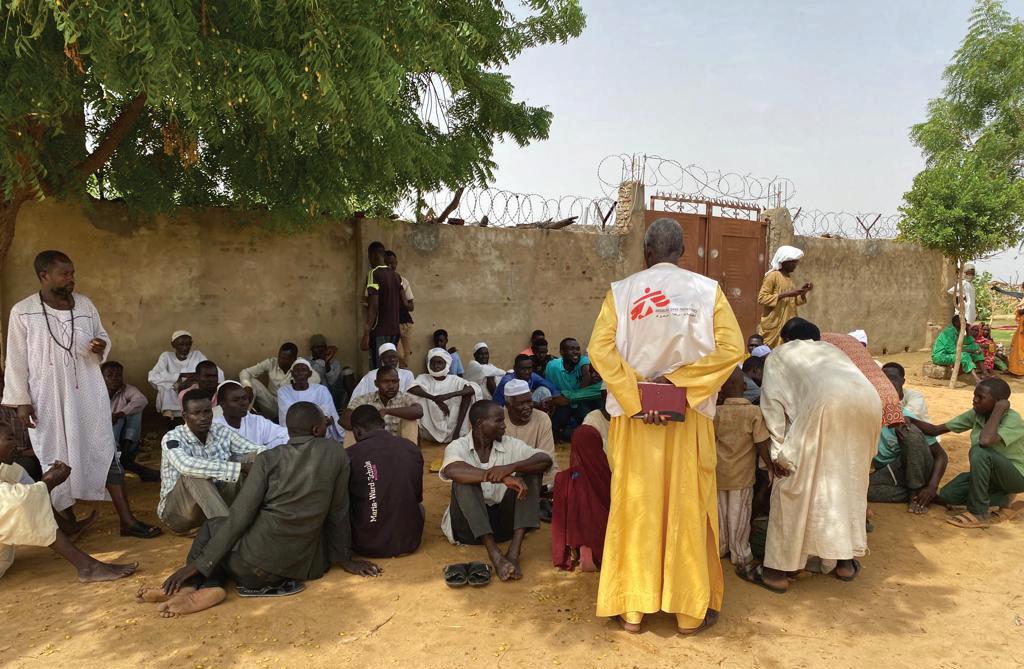
A survivor showed MSF staff a scar from a knife cut that he attributed to the event:
When the war broke out, we immediately evacuate towards Sennar. […] Soldiers from the government stopped us and told all men to step down [from] the car. We were a group of 14 people. They ordered us to take off our clothes and kneel on the ground. They put their weapon under my chin and asked me where I was from. I told them I was Habesha and going to the refugee camp. They replied that they did not need more Habesha here and that we were their enemies. They then [poured] boiling water on our skin and hit us with a stick [on our back]. We stayed an hour there before they brought us to a military camp and then finally let us go. […] I still have a lot of pain in my back and need treatment
MSF Patient, Kassala, December 2023
An MSF patient in Gedaref, who fled Madani at the end of March 2024 reports that RSF arrested and detained her 21-year-old brother for one week under suspicion of belonging to SAF. She said that he was interrogated and subjected to violence:
Damasareen [RSF] took [my brother] and pushed him in a car, they covered his face with a black hood and brought him to a building, or a house, we don’t know where about. He told me they kept him in detention for one week. They asked him questions and pushed him to give information about his affiliation to the Sudanese army. They broke his wrist and pushed his face down in the latrine to have him speak.
Woman displaced to Gedaref, March 2024
© Johnny Vianney Bissakonou/MSF/Chad, Sudan
Sexual and Gender-based Violence
In Sudan, cases of sexual and gender-based violence [SGBV] disclosed to MSF teams and treated in our facilities remain limited and most likely underreported. Due to stigma and security concerns around incidents of sexual and genderbased violence survivors are often unable to seek care safely. Survivors of, and healthcare providers for, conflict-related sexual violence face risks of retaliation from armed groups and perpetrators, and fear speaking out due to fear or stigma. Shrinking protection services and safe spaces have drastically reduced the opportunities for survivors to break the silence. Confidential identification spaces, safe shelters, specialised case management and mental health follow up remain limited, dysfunctional or non-existent in the areas where MSF operates. Data from MSF facilities supporting Sudanese refugees in Chad, however, hints at the widespread and large-scale use of sexual violence as a feature of the conflict, particularly targeting women and girls.

In MSF’s hospital at the Chadian border, 135 cases of SGBV, most of them occurring in Sudan during the conflict, were disclosed to staff between July and December 2023. Patients described surviving rape, including gang rape, abductions, and exploitation. All survivors were women and girls between 14 and 40 years old.


Of the 135 survivors of sexual violence treated by MSF team between July and December 2023 in Chadian refugee camps 19:
were abused by an armed perpetrator.
were raped by multiple attackers, with perpetrators making threats, holding the victim down, or standing guard during the rape.
were sexually abused in their homes, while the other half were assaulted during their daily activities or while fleeing from the conflict.
survivors described being abducted, with some subjected to domestic exploitation. Abductions ranged from one night to several months, with some survivors recounting being tied up and raped during the night.
survivors reported additional acts of violence during their rape, either against themselves or against a member of their family. Fathers who tried to protect their daughters were often injured, mothers were threatened with death, and victims were beaten.


19 Data based on MSF-Switzerland public reporting on SGBV witnessed in Eastern Chad refugee camps. Data points are not mutually exclusive, with survivors potentially falling under multiple data categories listed.
HUMAN
CONFLICT AND VIOLENCE IN SUDAN
© Mohamed Zakaria/Sudan
The limited testimonies collected from IDPs and refugees by our teams in Sudan strongly resonate with the findings from MSF’s facility in eastern Chad. Patients’ accounts also provide insights into several cases of abduction of women and girls:
When we tried to leave [Khartoum], RSF blocked us, and ask me to come with them to serve in the Sharg El Neel hospital for their soldiers. They would shoot me in the head if I refused […] My mother begged them to not take me, and they let us go. When we were in Umdawwanban, they came to the village and took 17 girls from the Bahateen tribe, and the 2 female doctors I worked with. They took them by force, and I don’t know what happened to them. I have a friend who stayed in Khartoum, and I know they killed her with three bullets in her body.
MSF patient in Kassala, December 2023
Other displaced people in Kassala and Gedaref states recounted abductions and disappearances of young girls following the takeover of the area by RSF forces. A woman displaced from Wad Madani reported having lost contact with her 16-year old relative after she was abducted:
We stayed until December there [Madani], until one day at 5 am, they started heavy airstrikes, shooting, killings. The daughter of my cousin was taken from the house; she is 16, they took her from the house and still we do not know where she is, whether she is safe or not.
MSF patient in Kassala, March 2024
Two young girls from Sariba, our neighbourhood [in Madani], disappeared. Later, when my brother was abducted, and when he came back home, he said that the two girls were in the same house where he was detained and that the girls had been there for two months. He said that he was hearing bad things done to them, the kind of bad things they do to girls.
MSF patient in Gedaref, March 2024
Another account from a refugee in Darfur mentioned cases of sexual violence in Forabaranga, West Darfur, a locality close to the Chadian border where people have sought safety from violence in territories controlled by RSF and affiliated groups:
In Forabaranga we heard they took the girls, they come behind them and then take them into a house to rape them. We heard four days ago a story of 2 girls who were trying to cross from Forabaranga [to Chad] and some men tried to rape them.
Refugees from Forabaranga, West Darfur, in a focus group discussion in Mogororo, Chad, June 2023
The medical data and testimonies provide snapshots of the harsh and vastly underreported reality of sexual and gender-based violence in Sudan. They illustrate how sexual violence is being used consistently against women in homes and along displacement routes, as a characteristic feature of this conflict.


Ethnically motivated violence


In Darfur, violence against civilian populations has taken an ethnic dimension. In West Darfur, violence reportedly perpetrated by RSF-affiliated groups against certain ethnic groups is believed to have claimed the lives of between 10,000 and 15,000 people in El Geneina in June 202320. In November, hundreds more were reportedly killed in Ardamatta.21



Medical data from the MSF supported Hospital in Adre (Chad) – only 30km from the Geneina – speaks to the massacres of June 2023. A retrospective mortality survey22 undertaken by MSF among Sudanese refugees in Chad showed excess mortality among Sudanese refugees in three refugee camps. In particular, the population in Ourang camp exhibited a 20-fold increase in mortality rates from April 2023 onwards compared to the pre-crisis phase, reaching 2.25 deaths per 10,000 people per day, with a peak in June. 83% of those killed were men (n=148). Violence, particularly with firearms, was the cause of death in 82% of cases (n=147). Most deaths took place in El Geneina, while a quarter occurred while people were fleeing to Chad. Nearly one of every 20 men aged between 15 and 44 years was reported missing during this period.22 In the hospital in Adre, MSF teams treated over 850 war-wounded victims fleeing ethnic violence from El Geneina between June 15 and June 17, 2023. Among the wounded were 62 pregnant women admitted for gunshot wounds or injuries from beatings. 23





MSF teams in Adre confirmed that the vast majority of war-wounded patients treated in Adre belonged to the Masalit ethnic group, who live in Chad and Sudan.
20 UN Panel of Experts on Sudan, Final Report for the Security Council, December 2023
21 OHCHR, “Sudan: Killings in Ardamata”, Press Briefing note from the Spokesperson for the UN High Commissioner for Human Rights: Jeremy Laurence, 17 Nov. 2023 Human Rights Watch, “The Masalit will not come Home” 09 May 2024, available at: https:// www.hrw.org/report/2024/05/09/massalit-will-not-comehome/ethnic-cleansing-and-crimes-against-humanity-el
22 MSF press release, January 2024
23 MSF press release, August 2023


Many of the wounded reported that Arab militiamen were targeting them because of their Masalit ethnicity and shooting at them in El Geneina. They told us that this violence then continued in the villages and checkpoints along the road to Chad, with men from the Masalit community being systematically targeted.
MSF Head of Emergency Programs in Chad, June 202324



In the stories they shared, patients reported being targeted on ethnic grounds, with horrific accounts of dead bodies scattered across the streets as people were fleeing: They told us [Masalit] that this wasn’t our country and gave us two options: immediately leave for Chad or be killed. They took some men and I saw them shooting them in the streets, with no one to bury the corpses.



Sudanese refugee interviewed in June 2023 in Adre, Chad


On June 25, I went to the hills north of ElGeneina to try and get a cell phone signal. Looking down into the valley, I saw at least 20 bodies and prayed to God to save me and allow me to join my family. (…) Many people did not make it to Chad and were killed simply because they were Masalit.
Sudanese refugee, Adre, Chad, June 2023 24 MSF Press release, January 2024





Elsewhere in Darfur, cases of ethnic targeting and discrimination were also reported. In Nyala, South Darfur, patients relayed accounts of RSF-affiliated militia going house to house, looting, beating, and killing people, targeting specific groups based on their ethnicity during the summer of 2023.




“[RSF] are targeting and harassing the non-Arab people. They accuse them of being related to SAF […] They arrested my neighbour and detained him for two days and beat him because he does not look from the same ethnic tribe. They asked 300k SDG to release him.”
MSF patient, Nyala, South Darfur, August 2023


A Sudanese refugee from Darfur interviewed on board the MSF Search and Rescue Vessel also reported leaving El Fasher due to fear of ethnic persecution:


I am Darfuri and in El Fasher I found discrimination. I could end up in prison, so I had to leave fast. South Sudan was too far. So, if you went to the south and they saw your colour was red [fair skin] they would let you pass, if not they would stop you. Most of the militias and the Rapid Support militias are Arabs and you can tell by their skin colour. Two weeks after the end of Eid, in May, I crossed into Chad, crossing the valley with many Sudanese families.
MSF patient, October 2023, Mediterranean Sea











Direct violent acts and abuse committed by armed forces against the general population – whether in the intimacy of their homes, or as they flee hostilities – appear to be consistent features of the conflict. The documented cases or fear of looting, arson, and direct attacks inside people’s homes have forced millions into displacement. As they leave behind family members, support networks, livelihoods, and financial resources, people who are displaced become more vulnerable, and face further exposure to violence, abuse and exploitation. Along these routes, access constraints for humanitarian and healthcare workers hinder the delivery of medical aid and protection services to vulnerable people on the move. In light of the scale of displacement in Sudan, protected and safe evacuation and movement routes must be guaranteed for the people fleeing violence, as well as for humanitarian workers responding to the needs.



© Frederic Seguin/ MSF/ Mediterranean Sea

Consequences of violence: the cost on civilians’ health
The widespread violence and insecurity have disrupted people’s ability to access healthcare and protection across the country, with concerning repercussions on their physical and mental health. The health system has been severely weakened by artillery and aerial attacks, power outages, and shortages of medical supplies and personnel. The deaths, harassment, abduction, and risks of forced recruitment of healthcare workers have forced many to flee their homes, leaving medical facilities understaffed. The crisis has also led to the seizure of public health assets, such as the National Public Health Laboratory, the collapse
of the National Health Insurance program, the Central Blood Bank, and National Medical Supplies Fund, impacting medical supplies stocks and blood reserves.25 The warring parties have shown their inability to guarantee safety for humanitarian personnel and assets, contributing to hesitancy and overall unwillingness from donors and service providers to scale up medical and humanitarian activities. Therefore, civilians not engaged in the fighting are paying the price of conflict related violence on their health, mental health and psychological wellbeing.
25 Harvard Public Health, ”How public health officials keep hope alive in Sudan’s civil war”, April 15th 2024
© Mohamed Zakaria/Sudan
© Irshad Khan/MSF/Sudan




Pre-existing health issues are further deteriorated by exposure to violence, displacement and lack of adequate support, food, and protection among the Sudanese population. Livelihoods have been disrupted during the conflict, heightening the financial barriers to access care and medications that require payment. Country-level shortages of medicines and medical supplies place millions of Sudanese at risk of severe illness or death from preventable and treatable causes


Most prominently, non-communicable diseases (NCDs) including hypertension, diabetes, renal disease, and cancer were highly prevalent morbidities in Sudan, long before this conflict.26 Ongoing violence has significantly affected the supply system, leading to a lack of medications to treat NCDs. This scarcity has been exacerbated by the closure of major healthcare facilities, including heart and oncology centres that were crucial in providing care for a large percentage of patients.27



Health complications and ruptures in chronic treatment


During February and March 2024, in Al Nao Medical Emergency Room in Khartoum, MSF provided 2,079 consultations for NCDs, comprising 39% of all medical consultations. In March alone, there were 25 deaths due to NCDs, representing 45% of medical deaths with a recorded diagnosis and 21% of overall deaths (medical and surgical combined). Medical deaths without diagnosis (n= 36) were likely also caused by complications of NCDs and thus accounted for just over half (52%) of all deaths in March (n=118). Diabetic complications alone accounted for 312 presentations (10% of medical presentations) and 9 deaths (16% medical deaths with a known diagnosis). A ‘survival bias’ is likely, meaning that people with life-threatening NCDs are more likely to have already died without access to treatment, and therefore no longer present to our services.



26 https://www.ncbi.nlm.nih.gov/pmc articles/PMC6730568/
27 Badri, R., Dawood, I. The implications of the Sudan war on healthcare workers and facilities: a health system tragedy. Confl Health 18, 22 (2024). Available at: https://doi.org/10.1186/s13031-024-00581-w

For example, MSF reports large numbers of deaths from renal failure due to a total absence of dialysis services28. One dialysis centre in Darfur has indicated that all 200 of its clients are presumed dead due to disruption of services.29

I travelled with my old mother, she has a chronic problem of hypertension, and she is diabetic. We could not support her, she did not have her medications, we tried to look for a doctor in Shendi and for people in the community who could give us the medicines free but was very hard and not always she was able to have the enough quantity, she would often be without medications for a long time. [...] My mom now is in a coma like situation, she is not responsive.




MSF Patient, Kassala, March 2024
2,079 CONSULTATIONS

During February and March 2024, in Al Nao Medical Emergency Room in Khartoum, MSF provided 2,079 consultations for NCDs, comprising 39% of all medical consultations. In March alone, there were 25 deaths due to NCDs, representing 45% of medical deaths with a recorded diagnosis.


28 MSF article ”Sudan: Over 1,000 wounded people treated at MSF-supported hospital during almost three months of fighting in El Fasher”
29 WHO, Public Health Situation Analysis: Sudan Conflict (03 April 2024) (2024). Available at: https://doi.org/10.1186/s13031-024-00581-w



Personal stocks of NCD medication have dried up, with people leaving their chronic medications behind when fleeing violence. Pharmacies either have run out of supplies or hiked their prices, making many medicines unaffordable for those who need them As a result, patients with chronic illnesses are suffering serious complications and sometimes dying from the lack of medication.



Additionally, as the frontline moves across states, long displacement journeys lead to deterioration of pre-existing conditions. People in need of emergency care are often forced to neglect their health needs or adopt improvised health practices that may lead to complications. An MSF patient in Gedaref city, who experienced multiple displacements from Khartoum and Madani, recalled having to flee from the hospital, leaving all the belongings and medications behind after delivering her baby:






When the war started in Khartoum, I was due to deliver my baby in a few days. Only three days after the war started, I was in a hospital in Bahri delivering my baby, who died only few hours later. I was psychologically destroyed, and physically tired because of complications with the C-section. My husband and I decided to flee Bahri to Al Managhil nonetheless, because the risk was too high, we needed to search for a place that is safer. We had nothing with us, we left everything at home to escape. I was bad, my C-section surgery was hurting. I started to clean the wound with a gel, you know one of those gel that you use to sanitise your hands… I had nothing else.





Many people with physical or mental disabilities sought safety in the eastern part of the country and were confronted with multiple challenges on the way to reach the states of Kassala and Gedaref. One of MSF patients, who set up a support system for people with disabilities to evacuate from areas with active conflict, told our teams:






MSF Patient, Gedaref, April 2024





One of the challenges is the frequent movement from Madani or Khartoum, as people have lost their mobility aids, such as canes, wheels, or artificial limbs. Some of them stopped physical therapy sessions, all of which affected rehabilitation and recovery.
MSF Patient, Kassala, March 2024



VIOLENCE IN SUDAN
© MSF/Sudan


Deterioration of mental health conditions and psychological wellbeing




The mental health consequences of violence and displacement on people are dramatic. For many people in Sudan, the psychological wounds of violence and displacement remain untreated, with potential long-term implications on their ability to cope with hardship and heal from trauma. In eastern states, MSF mental health teams support IDPs, refugees, and host communities to deal with the impact of the war on their psychological wellbeing. In Kassala, MSF recently conducted a 10-week emergency response30 in IDP gathering sites and provided 439 group sessions, 239 individual counseling sessions, and play therapy for children, reaching 3,938 patients. In the Tenedba hospital in Gedaref State, MSF mental healthcare providers have admitted over 790 new patients for counselling since the beginning of the conflict, providing over 3,000 individual sessions. Among the main symptoms observed, MSF teams mention psychological distress, difficulty sleeping, nightmares, flashbacks and other symptoms of post-traumatic stress. Anxiety and mood related problems amounted to 64% of the main symptoms identified since April 2023, and were often precipitated by a conflict-related event:




The war has directly increased symptoms such as sleeping disorders, loss of appetite, mood and post-traumatic stress disorders. We see many patients whose relatives were abducted or raped. They stop eating, sleeping, engaging with others. Some wake up at night and start screaming due to nightmares. It’s the pain, the trauma, the stigma. It’s all the stories they’re not yet ready to tell.
MSF Mental Health Team Member, April 2024






MSF teams mention psychological distress, difficulty sleeping, nightmares, flashbacks and other symptoms of post-traumatic stress. Anxiety and mood relate problems amounted to 64% of the main symptoms identified since April 2023 during mental health consultations.

A patient interviewed in Gedaref IDP gathering sites, who experienced the violence in Khartoum, describes the impact of the displacement on her psychological wellbeing:


30 MSF Emergency Response in Kassala: https://msf.or.ke/news-andresources/news/urgent-humanitarian-intervention-needed-plightinternally-displaced-people



I stopped sleeping for four months, I feel stressed and overwhelmed. Looking back is like a fantasy, like a dream, one day you have everything and the next you lost it.
MSF patient, Gedaref, March 2024

A particular concern for MSF mental health staff has been the conflict’s impact on patients with psychiatric conditions. An MSF counselor detailed how violence, displacement, and lack of access to specialised care and medication has aggravated pre-existing psychiatric conditions:



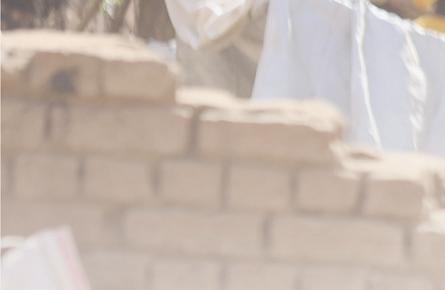









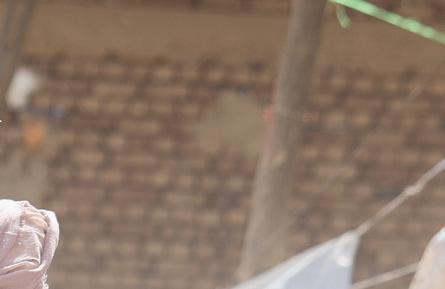






The war has had dramatic consequences for patients with a psychiatric condition. Most of them were treated in Khartoum and Madani where you had specialised services, but they had to flee and stopped their medication. Their symptoms have increased, which in turn puts more weight on their families. Some patients with psychiatric condition witnessed summary executions at checkpoints. They have no access to adequate medication here and when they have flashbacks, they can start destroying everything around them and assaulting people.

Children have been particularly affected and vulnerable to chronic stress and anxiety. Parents reported how their children developed chronic stress and anxiety from constant bombing, shelling, and shooting, with symptoms enduring after leaving active combat zones. MSF staff confirmed that children presented forms of PTSD symptoms in response to certain triggering sounds they associated with the war:




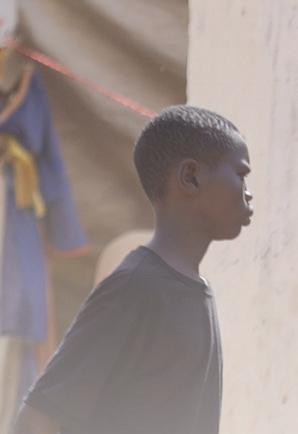


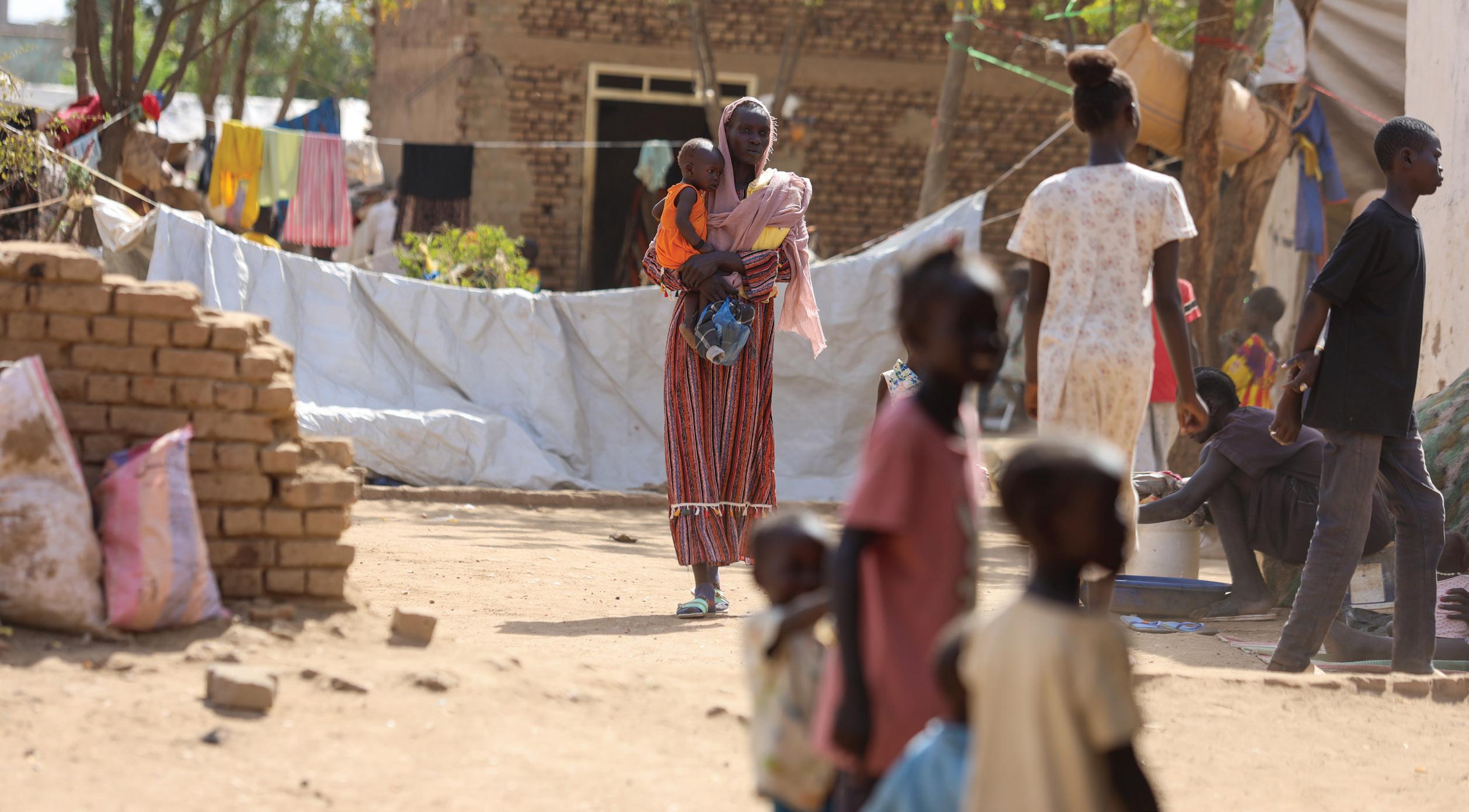
MSF Mental Health Team Member, April 2024
When remaining untreated, these symptoms can lead patients to self-harm or to attempt suicide.
From April-December 2023, mental health teams in the MSF-run Tenedba Hospital in Gedaref State reported concerning cases of patients with suicidal thoughts (n=53), suicide attempts (n=10), and two deaths by suicide.
We are witnessing an increase in patients with suicidal thoughts, or cases of attempted suicide. I’ve seen this particularly with displaced refugees, who after having built a new life and spending sometimes 20 years in Khartoum, end up once again in a refugee camp where they have no home, no relatives. They need to start from scratch all over again. Some want to end the suffering and decide to take their life.
MSF Mental Health Team Member, April 2024
What I see the most during consultations with young kids is how certain sounds trigger PTSD symptoms. They hear a motorbike or a car and they instinctively cry, hide, or shout, because they think armed men [are] at their door.
MSF Mental Health Team Member, April 2024
Vulnerable populations, whether caught in active conflict zones or forced into displacement, are bearing the consequences of a collapsed healthcare system. Across Sudan, individuals in need are struggling to access essential medicines, let alone vital chronic medication to treat non-communicable diseases such as diabetes or hypertension. Barriers to drug availability and affordability, as well as access to healthcare providers, are causing people to die from preventable diseases and complications. The violence and displacement are taking a devastating toll on people’s psychological wellbeing, with untreated conditions and deteriorating mental health, posing significant long-term risks for those affected. Across Sudan, and particularly in areas accessible to humanitarian actors, a massive, multi-sectoral increase in the response to health, protection, and nutrition needs is urgently required to address the deep and open wounds of survivors of violence.
© Faiz Abubakr
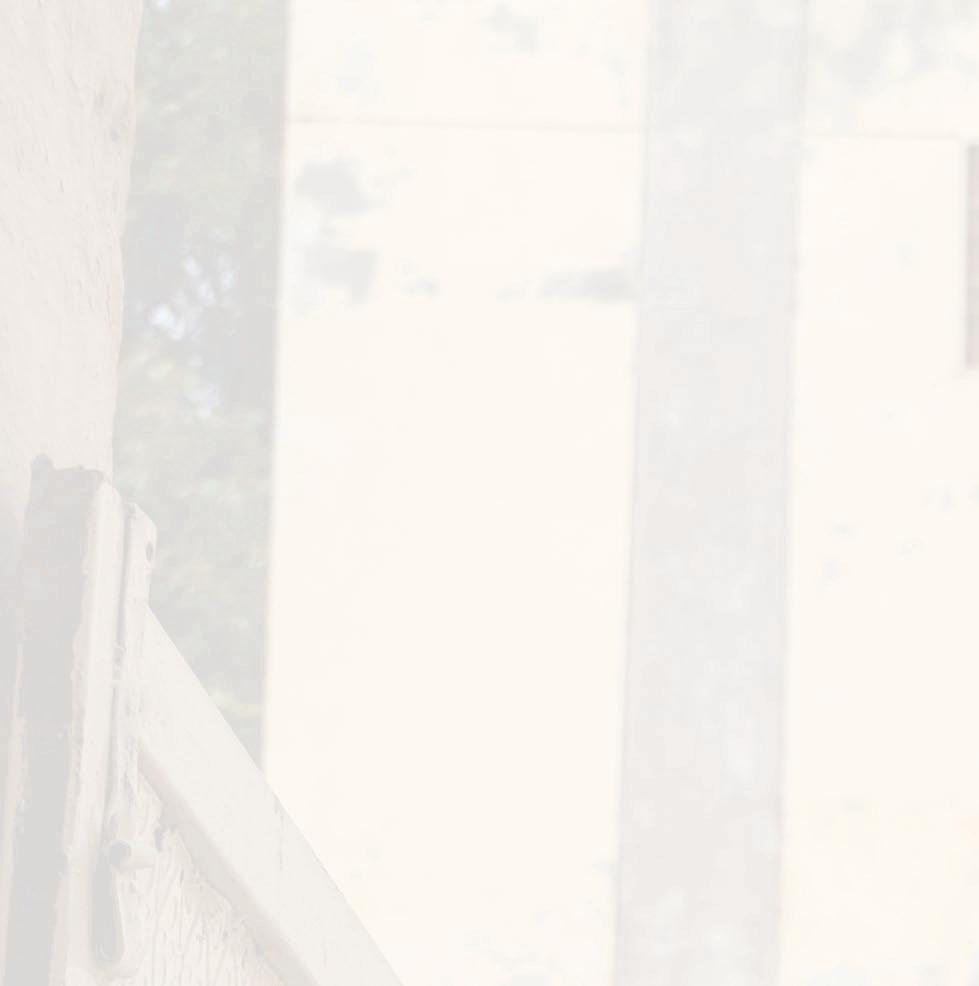
Conclusion and Calls to Action


Now Sudan is in its second year of conflict, frontlines keep moving, active hostilities are intensifying, and more people are displaced, with no de-escalation on the horizon. As this report illustrates, rampant abuse of civilian populations, including a wide range of violations of international humanitarian law, characterises the current behaviour of all parties in this conflict. A vivid contrast has emerged between the public rhetoric of warring parties and the reality of present Sudan. On one hand, the mere lip service to upholding humanitarian principles, international humanitarian law and the safeguarding of human rights and wellbeing of the Sudanese people. On the other hand, the reckless destruction of healthcare facilities, the pervasive insecurity of aid providers, and the widespread killing, abuse, and torture of civilians.

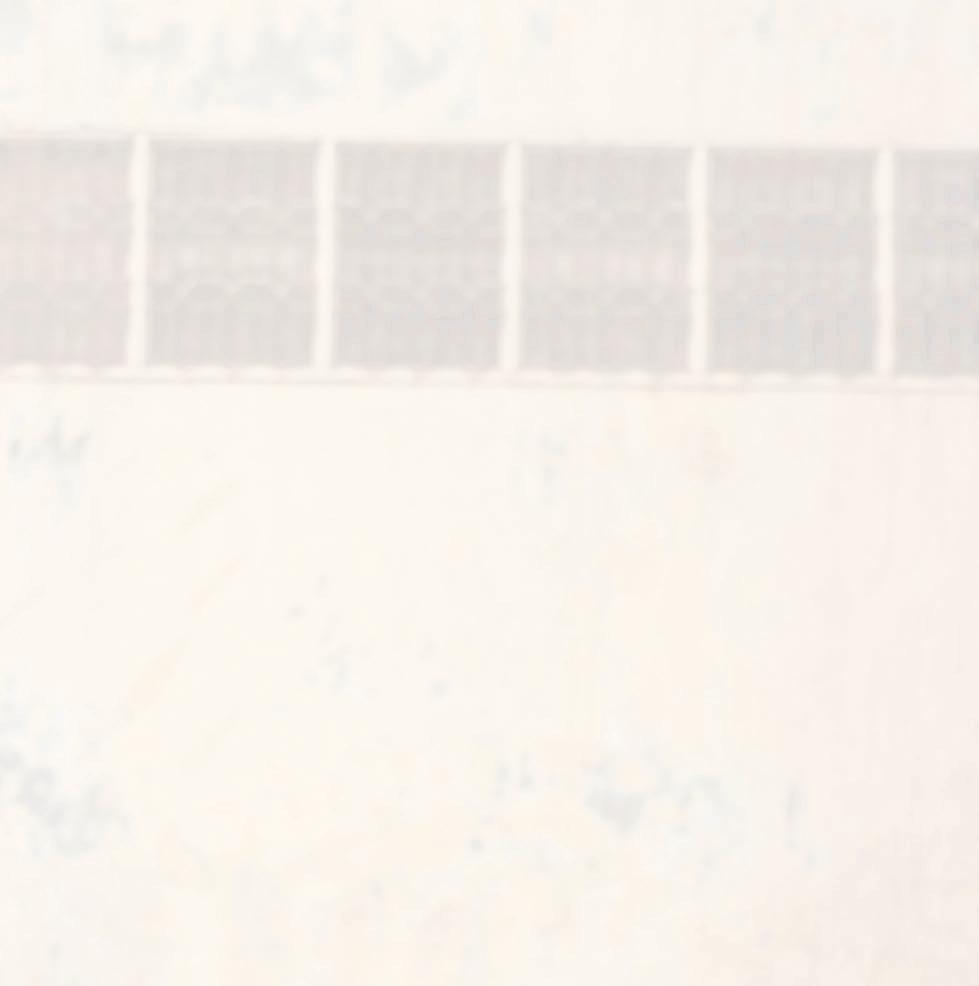

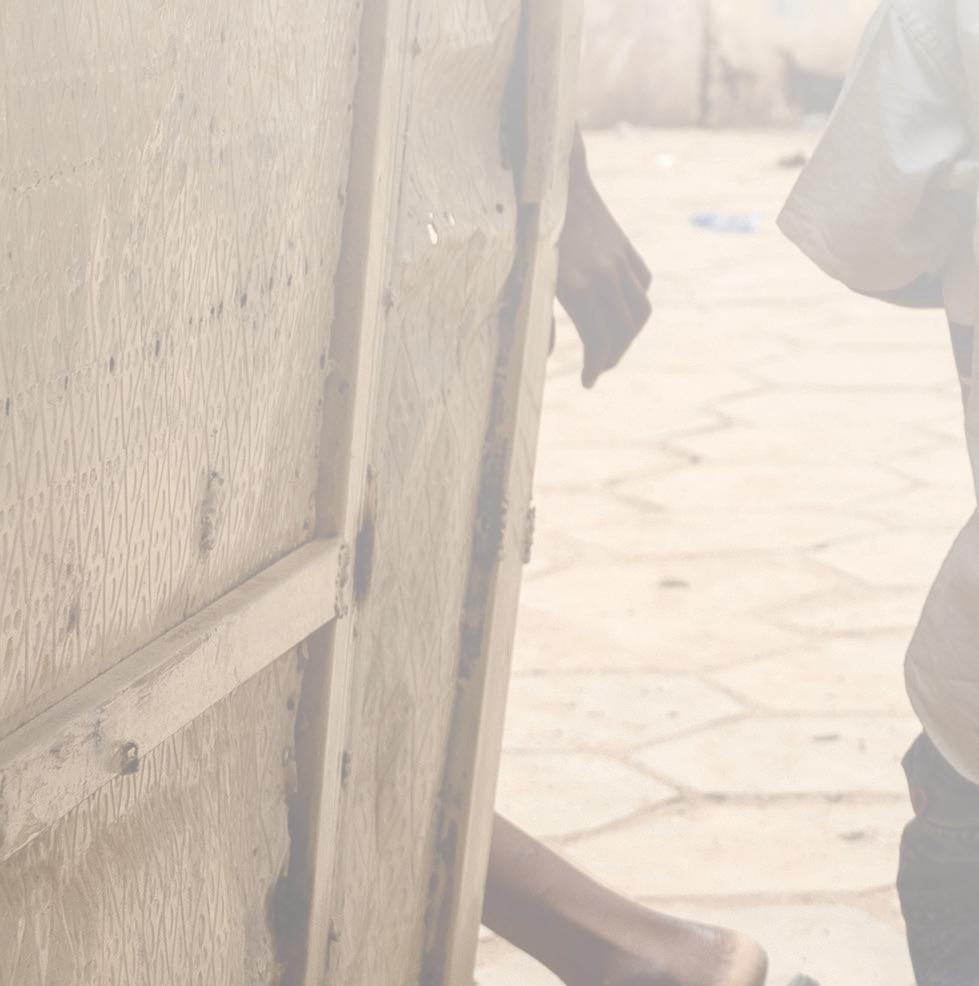



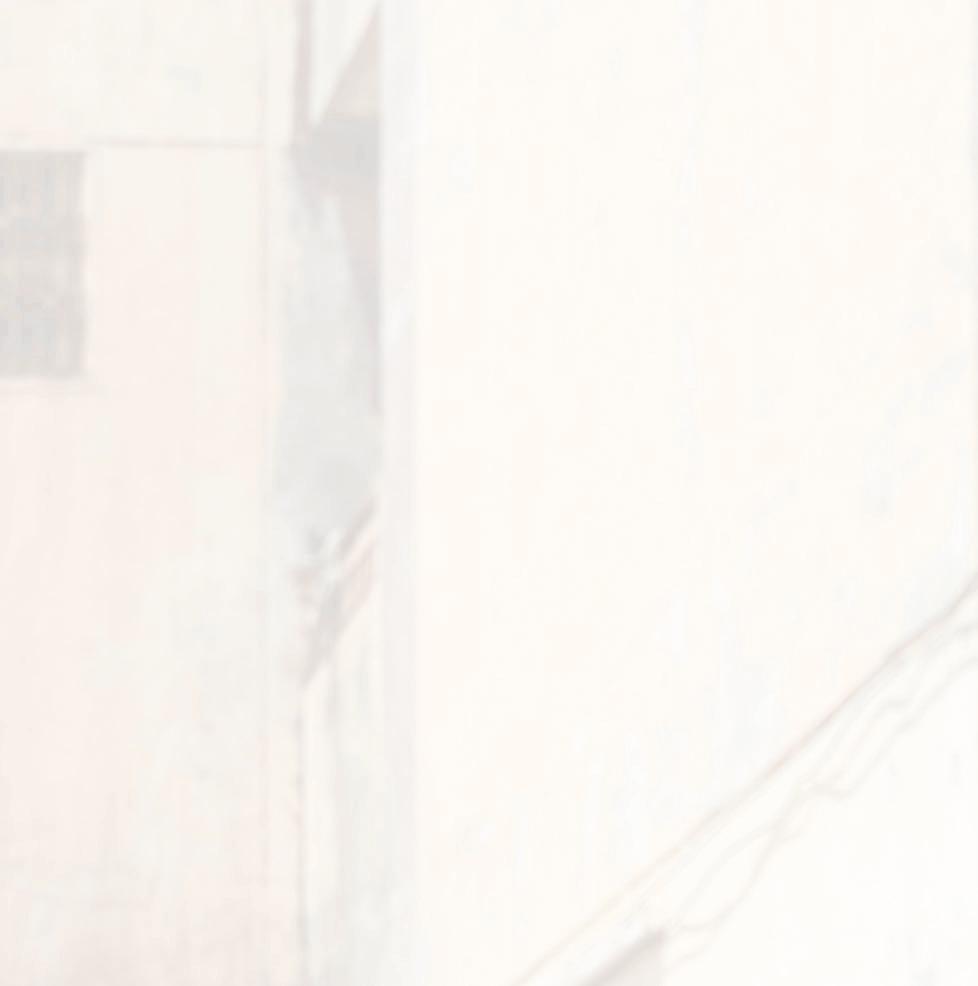


Men, women and children turn to MSF facilities seeking treatment for conflict related injuries, and fill emergency departments in Khartoum and Darfur following mass casualty events. In medical facilities and on displacement routes, MSF doctors and nurses treat the sick, care for the wounded and dispose of the dead, while our mental health teams attend to the profound psychological wounds of our patients. Despite these efforts, the growing humanitarian needs in Sudan remain largely uncovered. The damage to vital health infrastructure; the deliberate obstruction by the authorities to constrain humanitarian supplies cross border or cross frontlines, the widespread looting of humanitarian assets and diversion of aid, have severely curtailed medical stocks and hindered lifesaving assistance, leaving previously bustling medical hubs devoid of essential healthcare services. The pervasive climate of mistrust and heightened surveillance has led to arbitrary arrest, detention, and cycles of interrogation, degrading acts, and torture for individuals suspected of affiliation to one or the other party in the conflict. Sexual and gender-based violence is recurrent in houses, urban settings, and displacement routes, yet alarmingly under-reported due to stigma, insecurity, and lack of protection frameworks for survivors and service providers. In Darfur, targeted violence and the persecution and displacement of certain ethnic groups reminds us that the spectre of ethnic cleansing looms over the life of many.
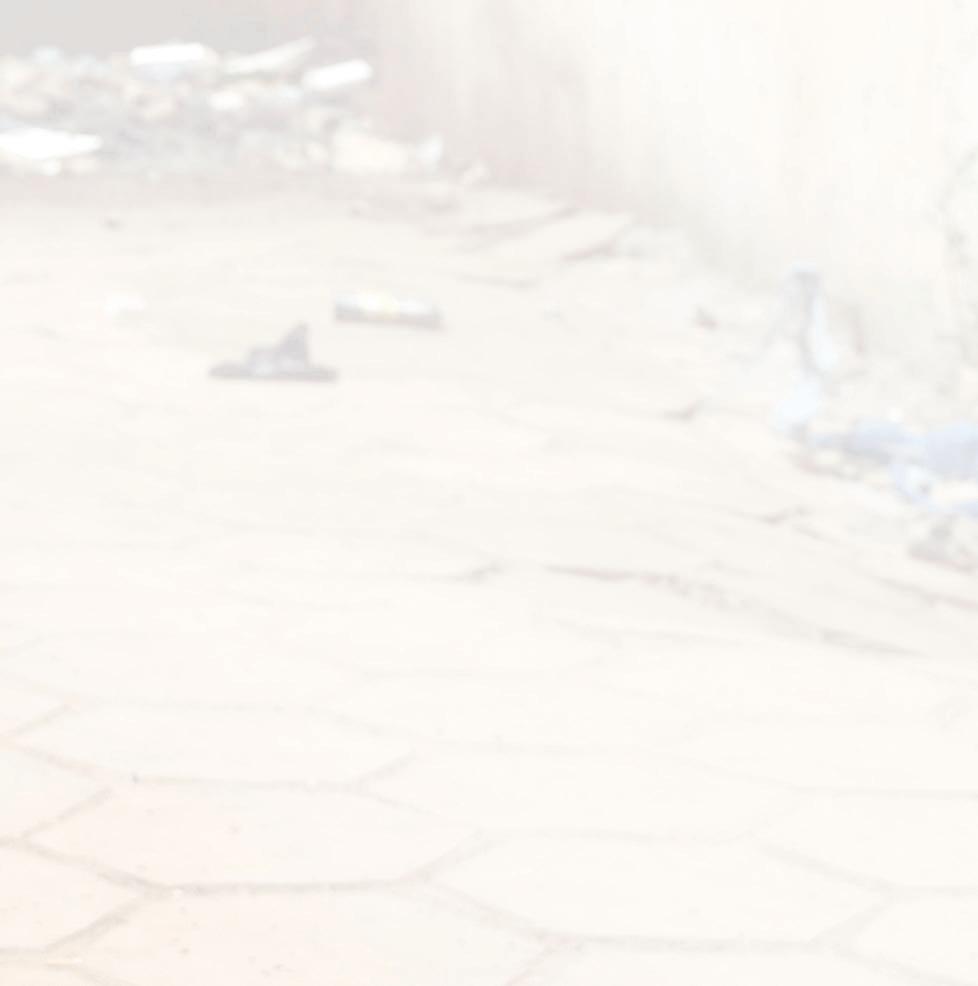
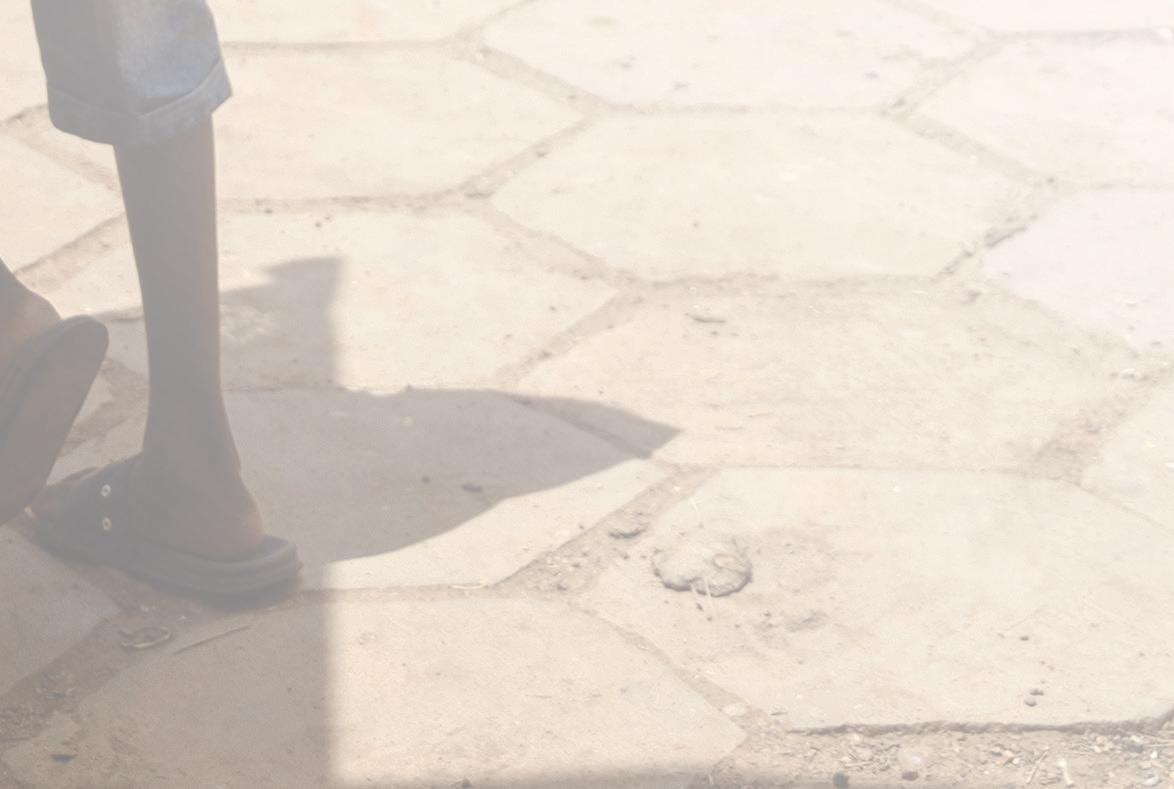
The failure of international efforts and diplomatic endeavors to secure humanitarian access and guarantee civilian protection stands as a reminder of the depth of this largely forgotten crisis. In the streets, hospitals and markets, the Sudanese people continue to pay the human cost of this conflict, without functioning support systems in place. It is imperative for all parties in the conflict to respect IHL and IHRL and match their multiple commitments to end civilians’ suffering with verifiable and sustained change. Anything less will stand as a damning indictment of the chosen conduct of this conflict.
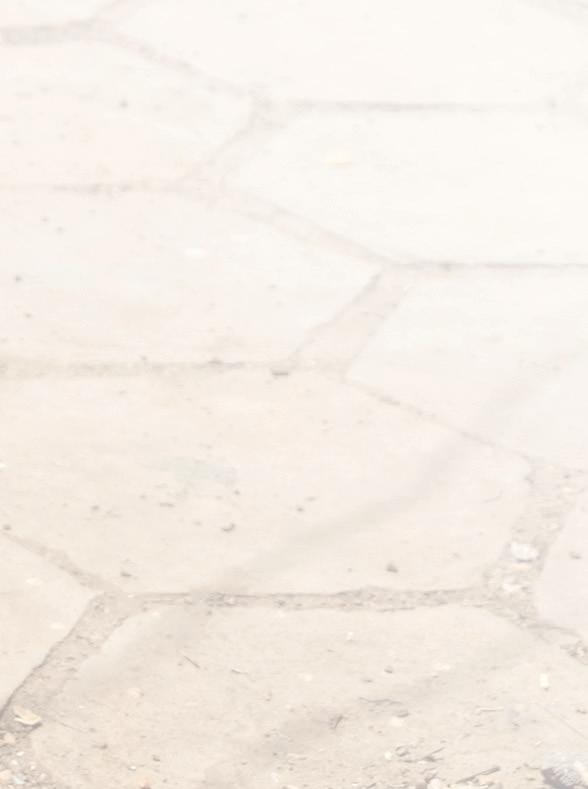





The SAF, RSF, and All Armed Groups:
To Protect Civilians Now: Honour your international obligations and uphold your commitments made in Jeddah and numerous public statements.
Cease Attacks on Civilians: Immediately stop all attacks on civilians and residential areas.


Ensure Safe Passage: Guarantee safe routes for those fleeing violence, within Sudan and to neighbouring countries.
Protect Infrastructure: Safeguard hospitals and medical facilities, respecting weapon-free zones and the safety of patients and staff.
Facilitate Aid: Allow unhindered humanitarian access and ensure supplies and staff reach those in need; assistance must be able to reach people in need across borders and front lines.


End Violence and Abuse: Stop all forms of violence, including rape, sexual violence, ethnic violence, looting, and abuse.
To Partner States (US, UAE, Saudi Arabia, Chad, Russia, Egypt):
Exert pressure on the warring parties: Utilise your influence and proximity over the warring parties to stop deliberate violence against civilians and humanitarian workers.


Considering the above medical findings and staggering reports from patients, MSF calls on:


Protect Civilians: Insist on the protection of civilians and continuous humanitarian access.
Re-establish Presence: Scale up field presence and protection services for survivors of violence.
Establish Monitoring Bodies: Consider creating bodies to monitor and protect civilians effectively.


Enhance the civilian protection mandate of the UNSG’s envoy to Sudan.
To the African Union High Panel for Sudan and IGAD:
Take Immediate Action: Use all available means at your disposal to ensure civilians are protected and able to access humanitarian assistance.


Prioritise Civilian Protection: Make civilian safety a core point of leverage in all engagements with SAF and RSF.
To the United Nations:
Amplify this Call: Strongly advocate for respect of international humanitarian and human rights laws.



Increase Scrutiny: Intensify oversight of violence against civilians and medicalhumanitarian workers.
To Donors, the Humanitarian Community, and UN Agencies:
Scale Up Response: Enhance services across all sectors, including targeted responses for survivors of violence.

Support Asylum Seekers and Refugees: Fully address the humanitarian needs of those seeking safety.
To all parties involved:



Demand accountability: Use all means at your disposal to hold SAF, RSF, affiliated individuals and entities, accountable for the widespread violence against civilians perpetrated in this conflict.




Médecins Sans Frontières | Doctors Without Borders msf.org
